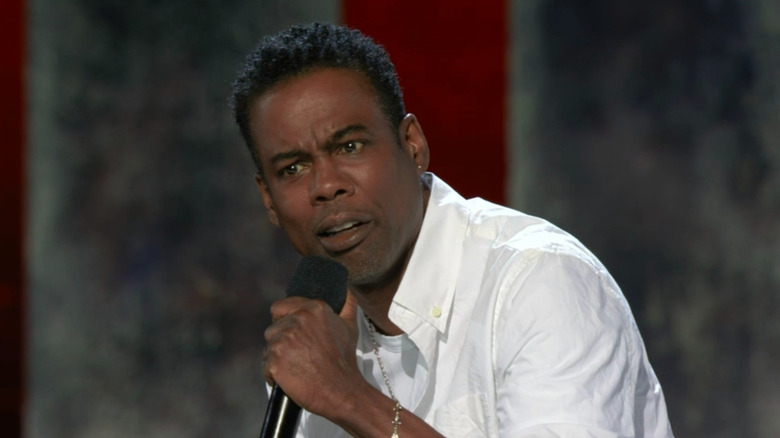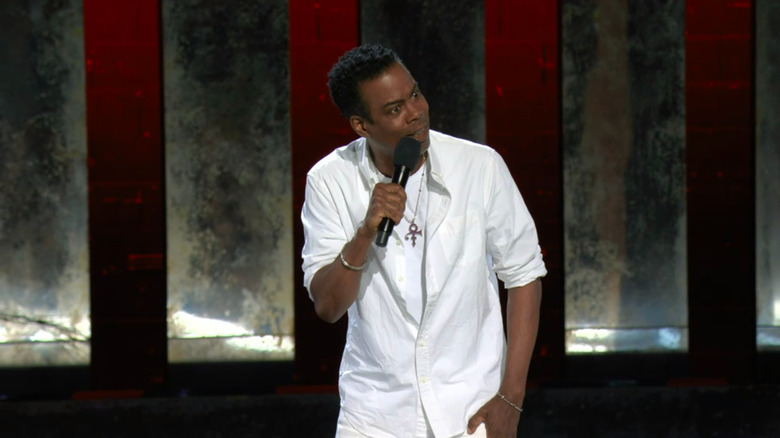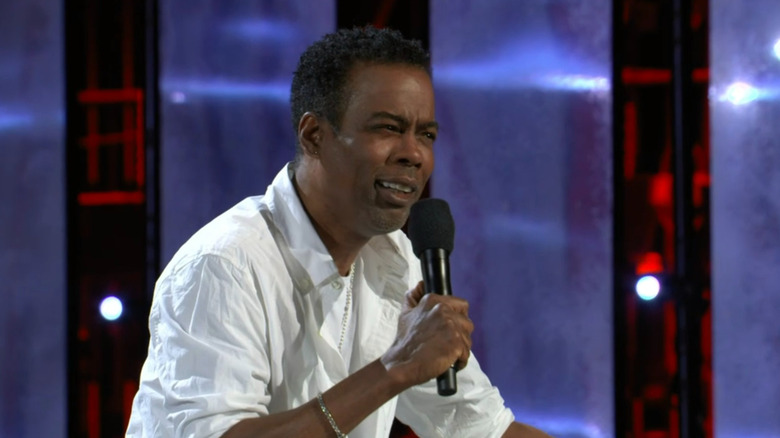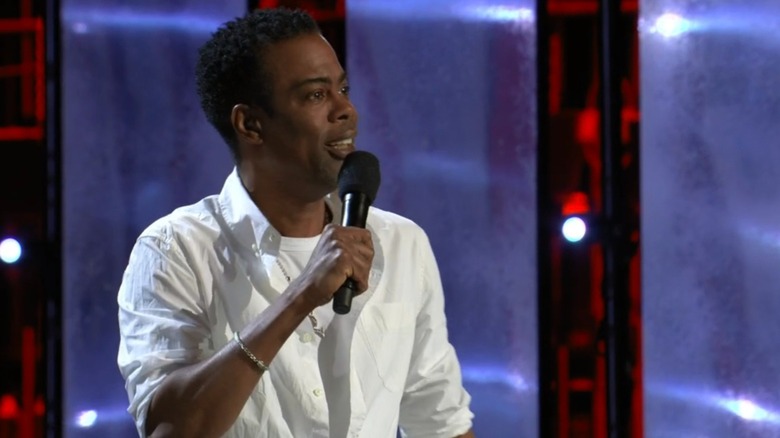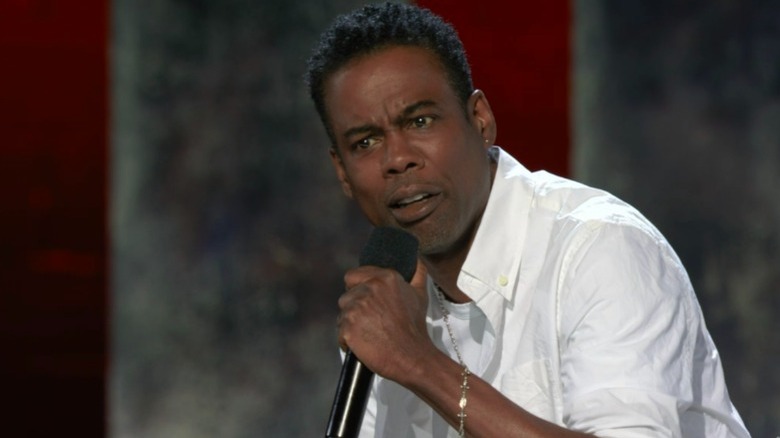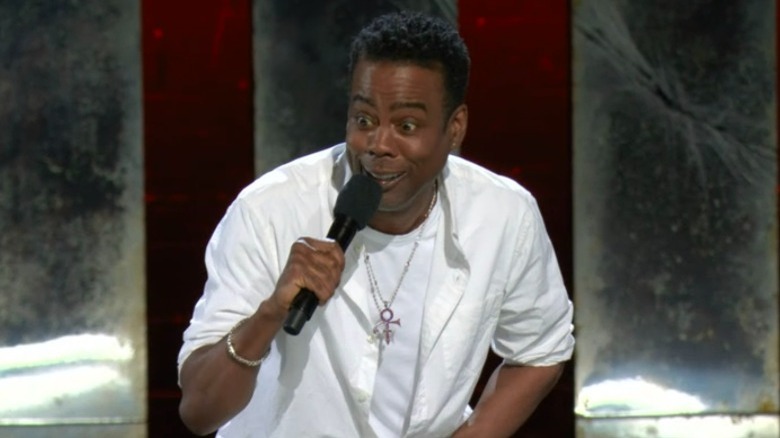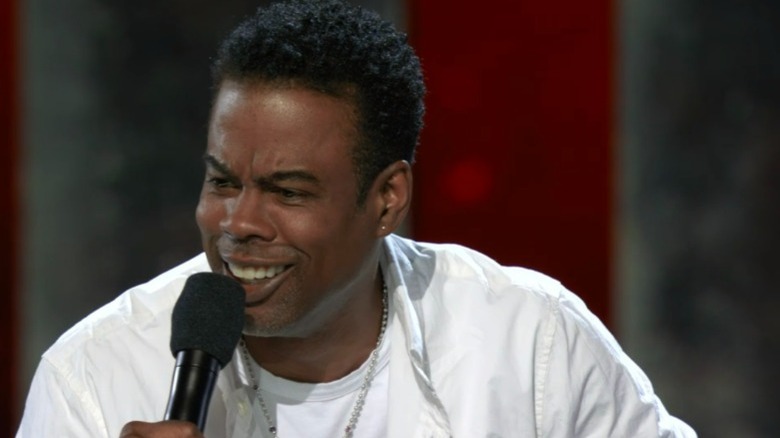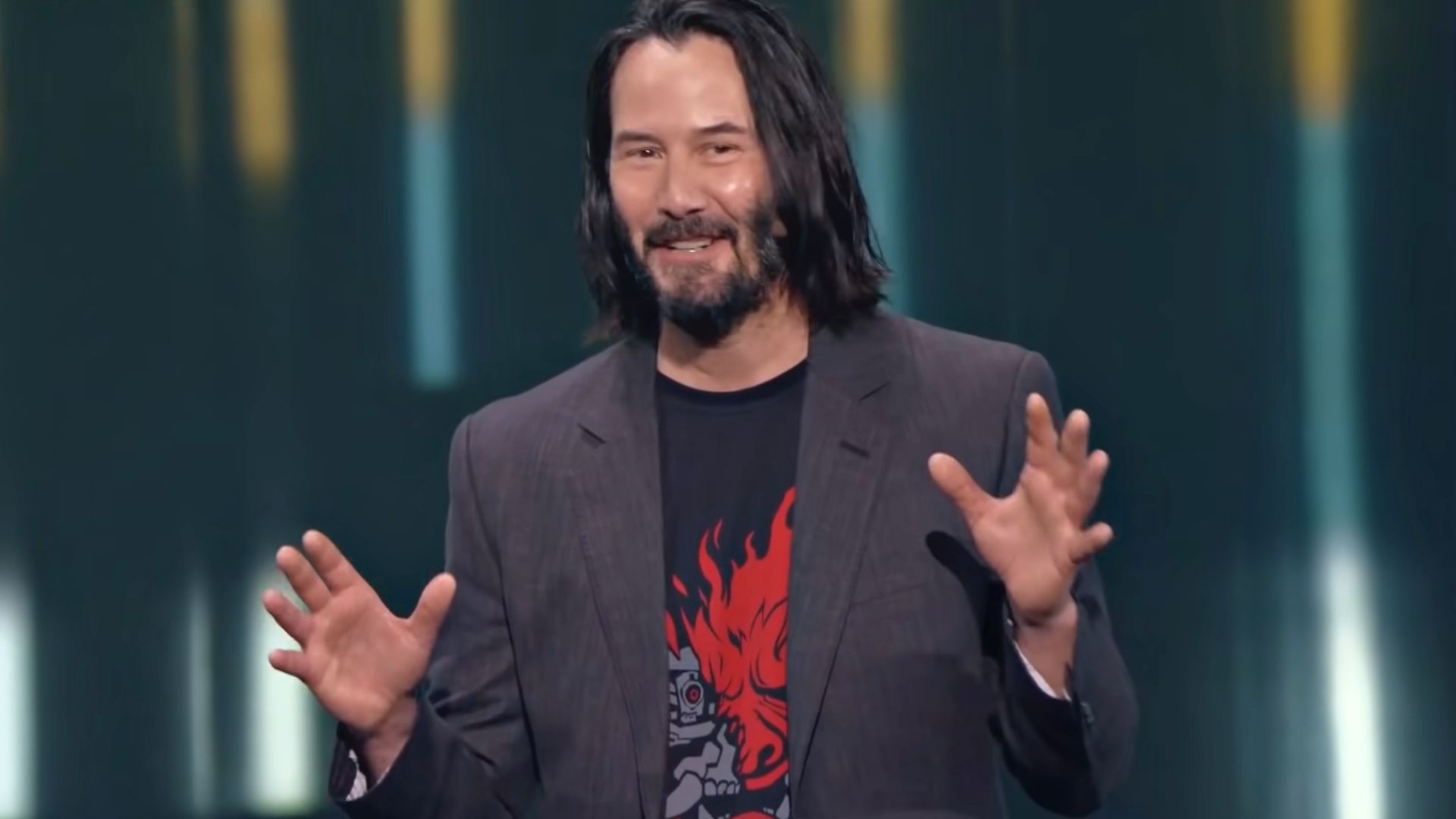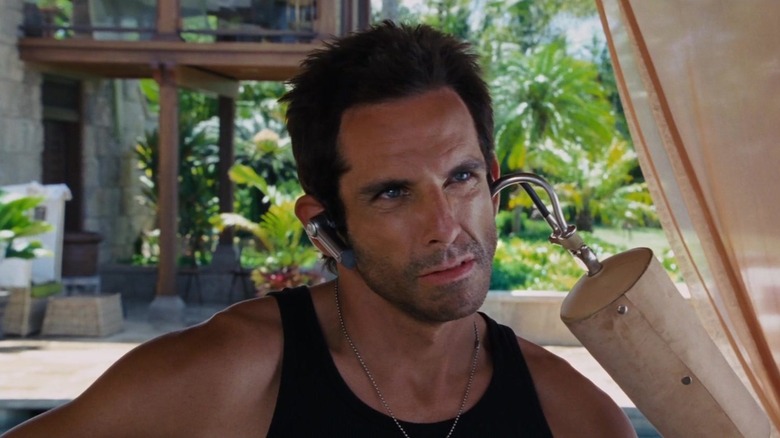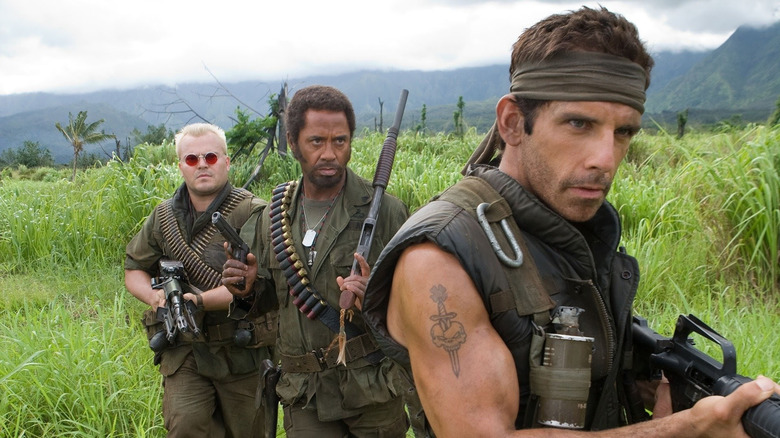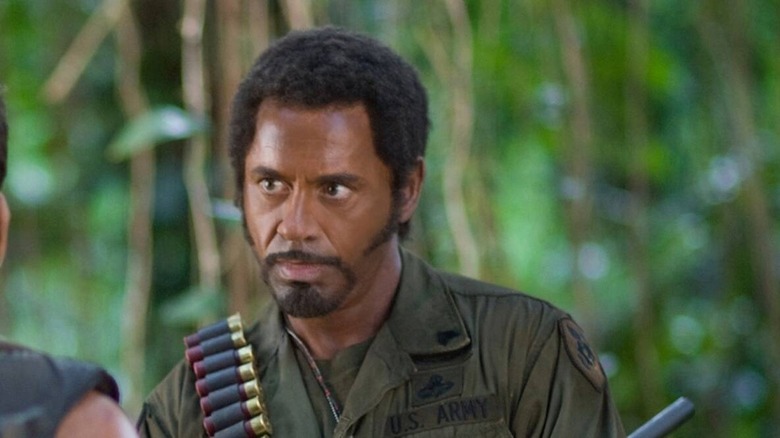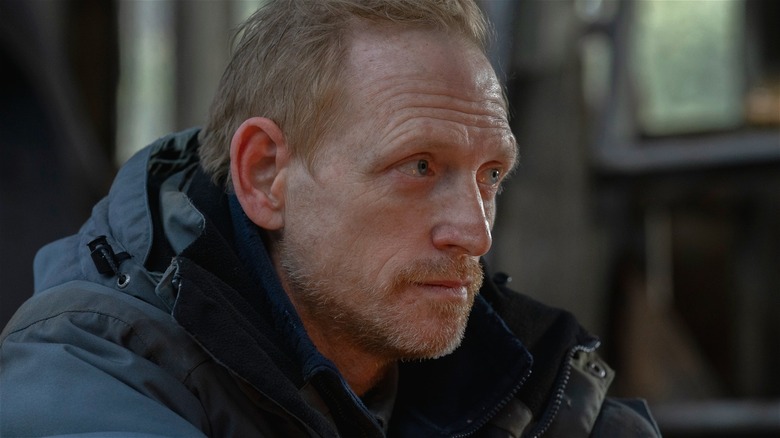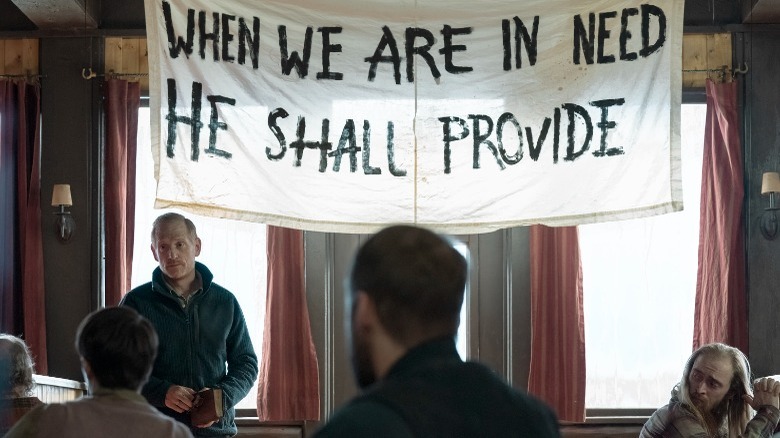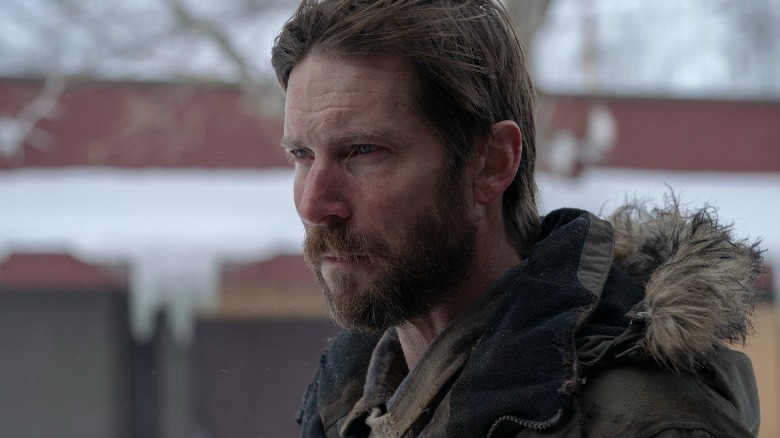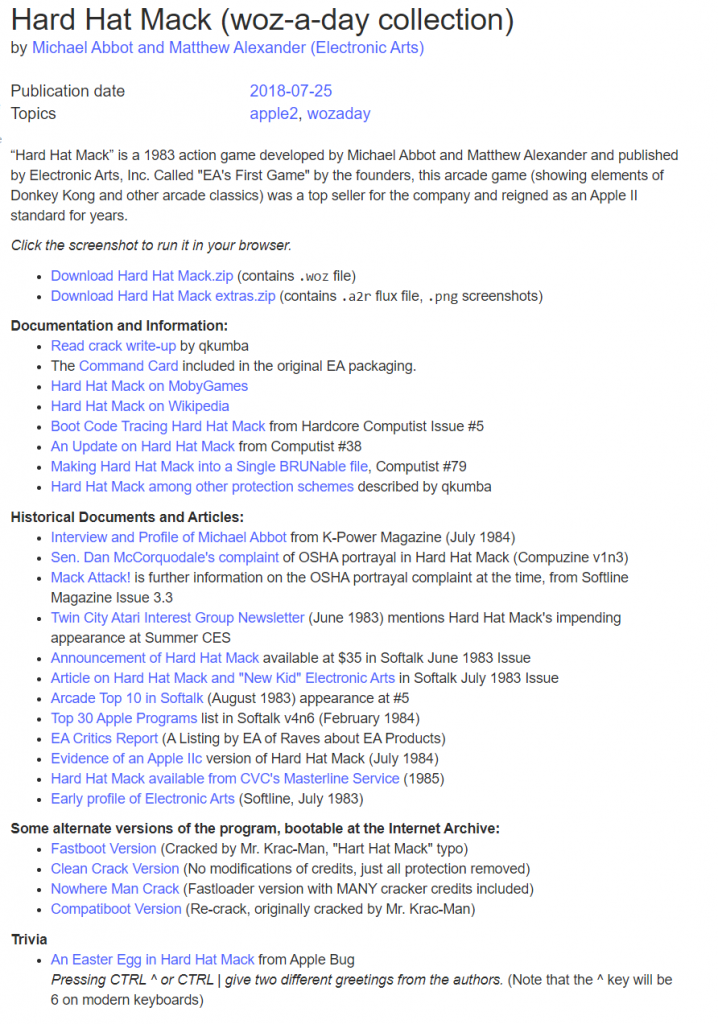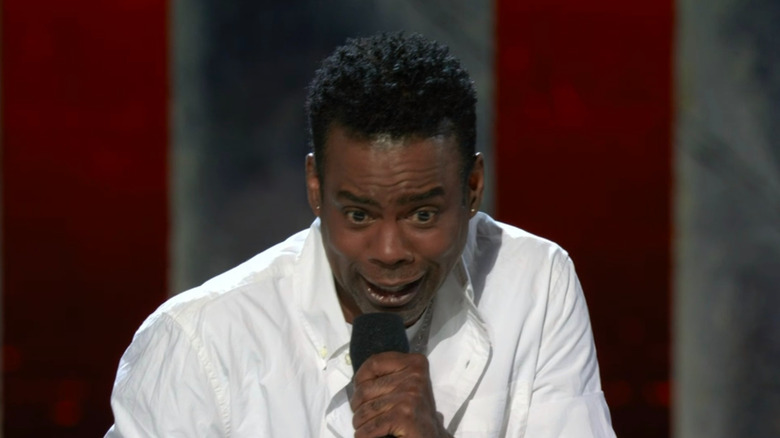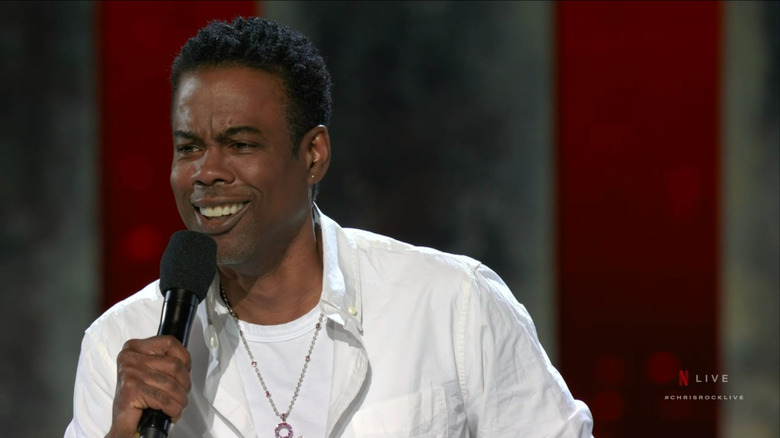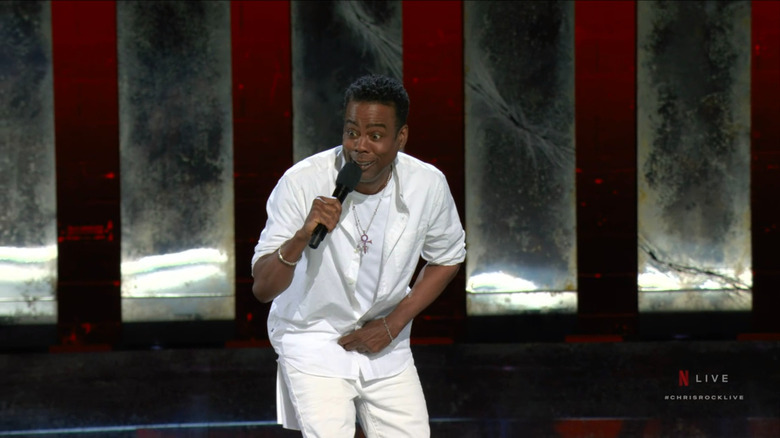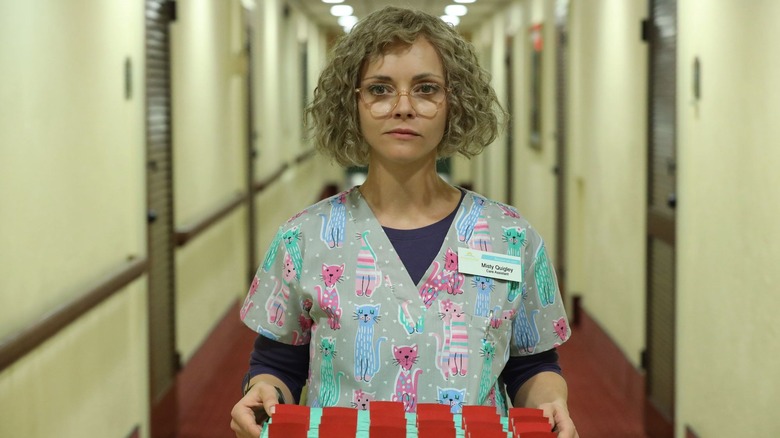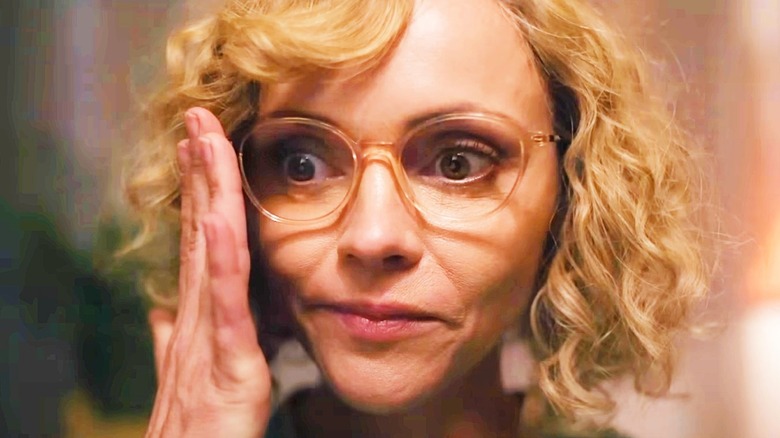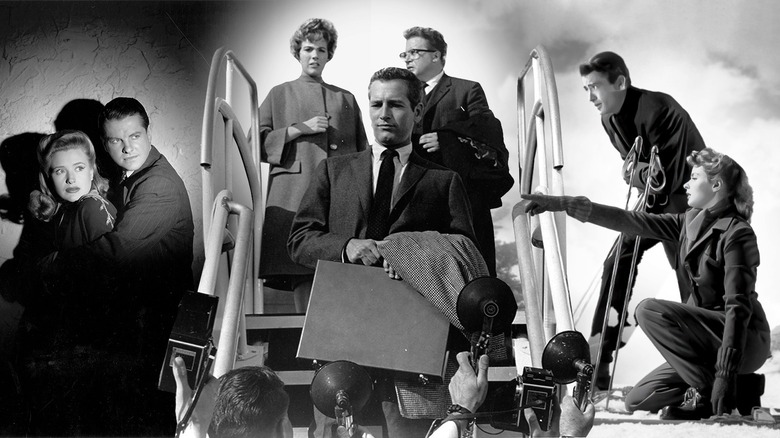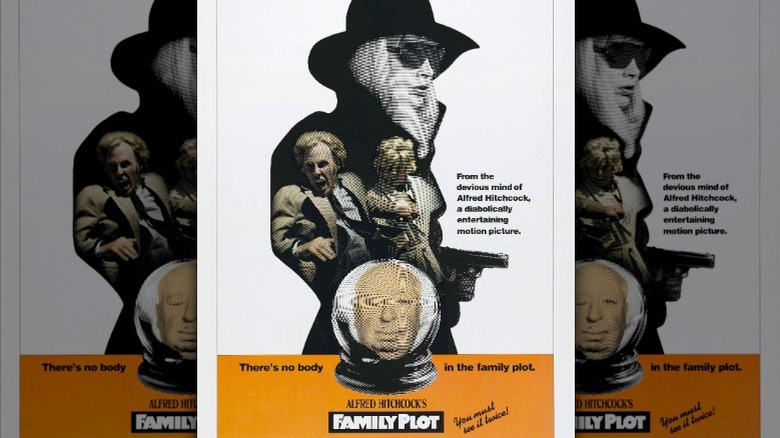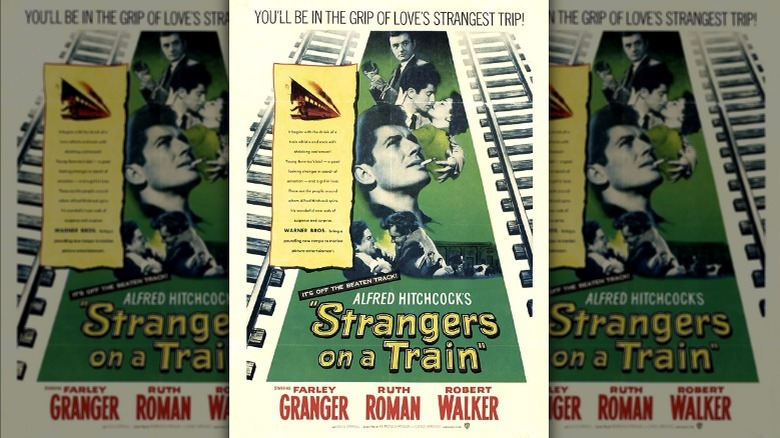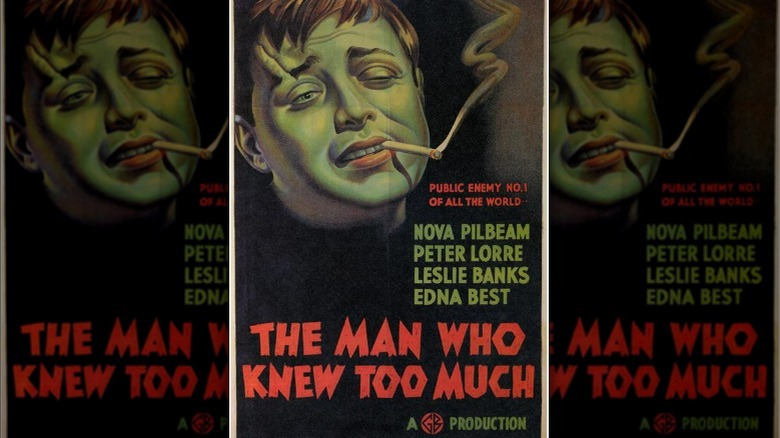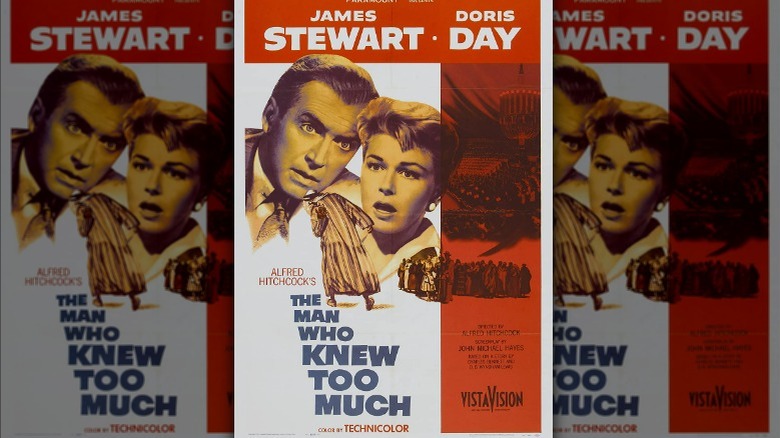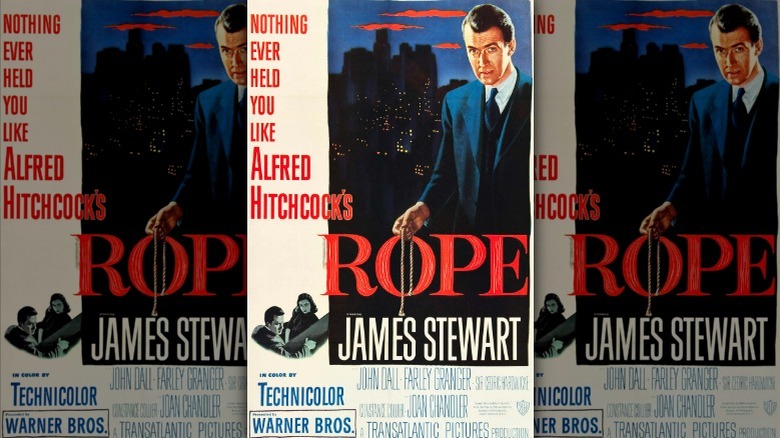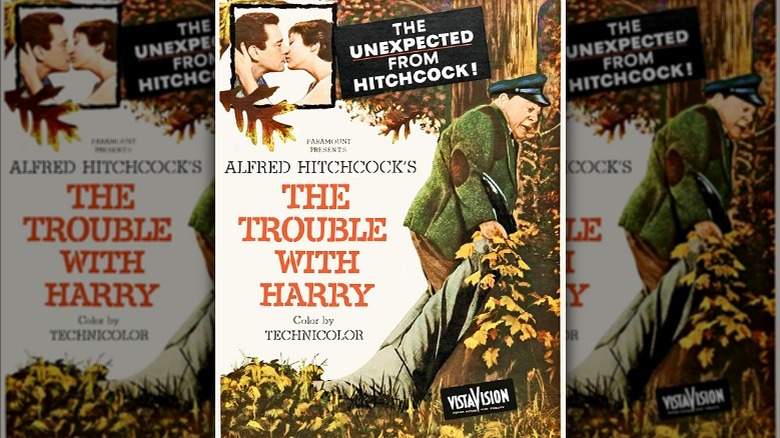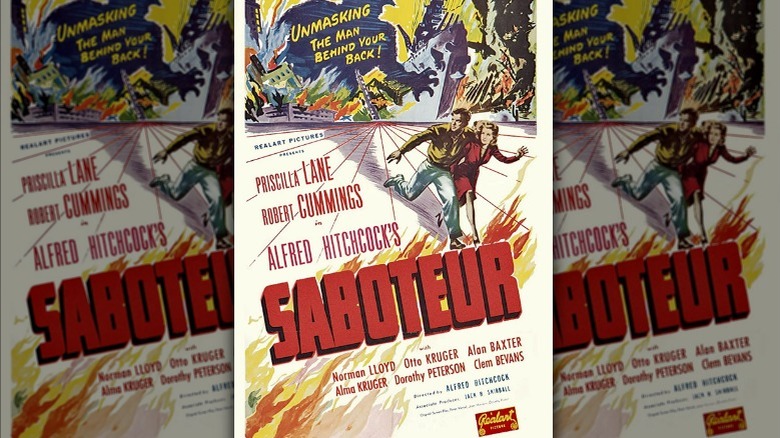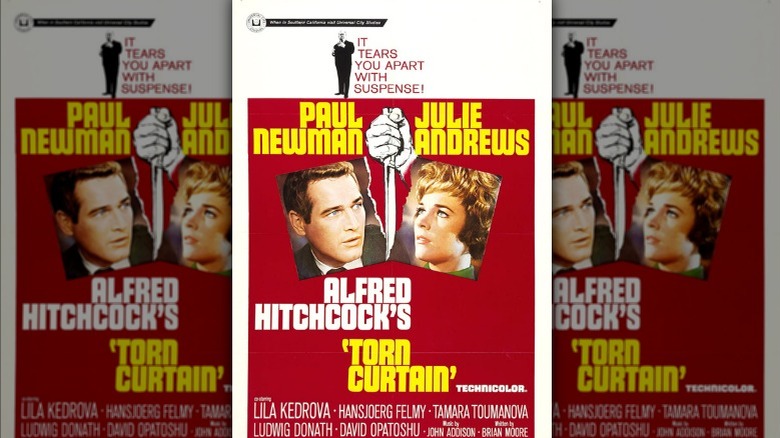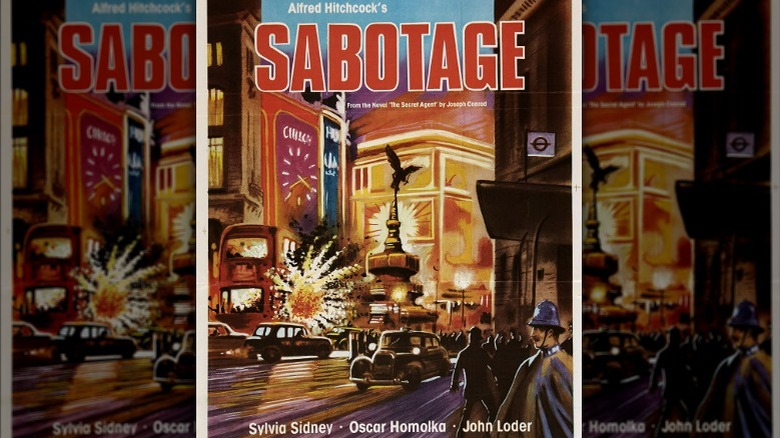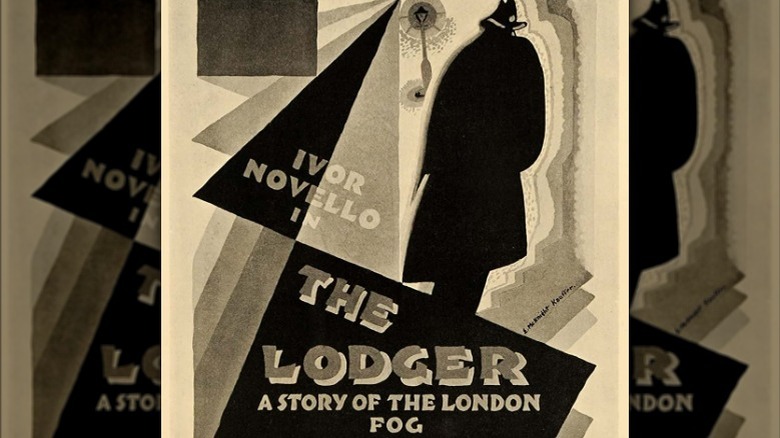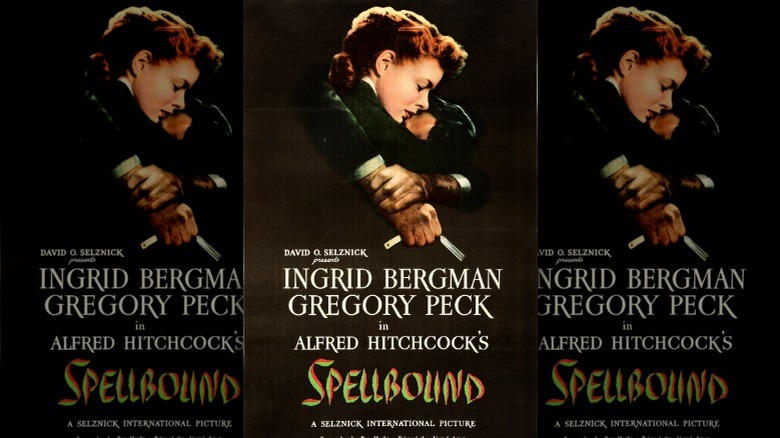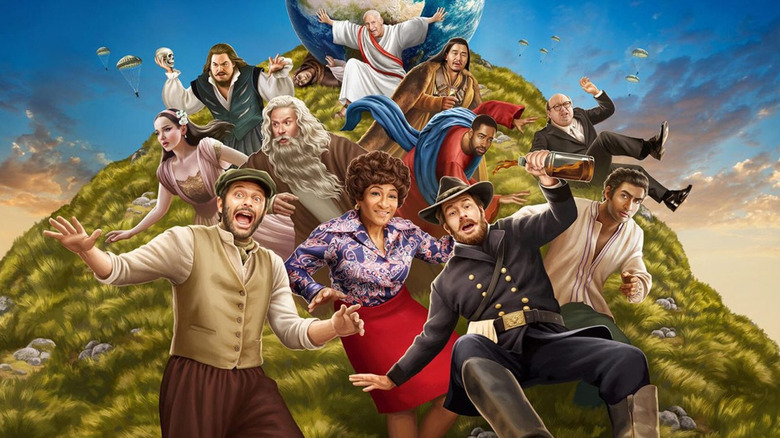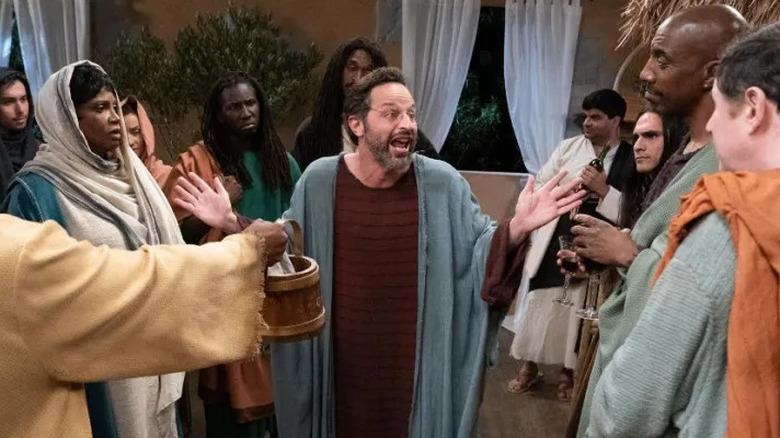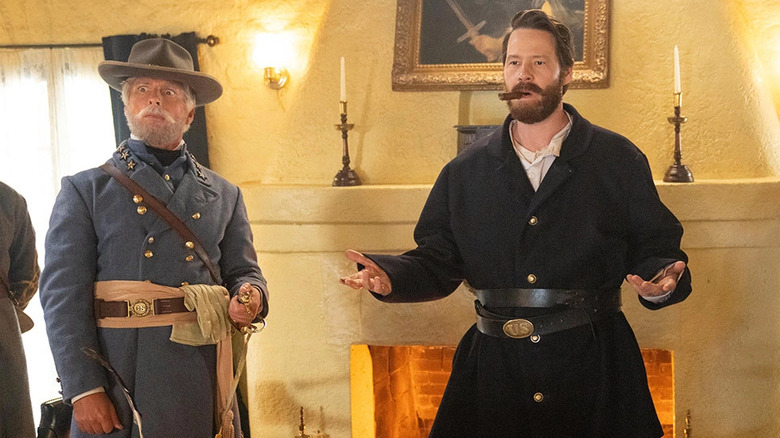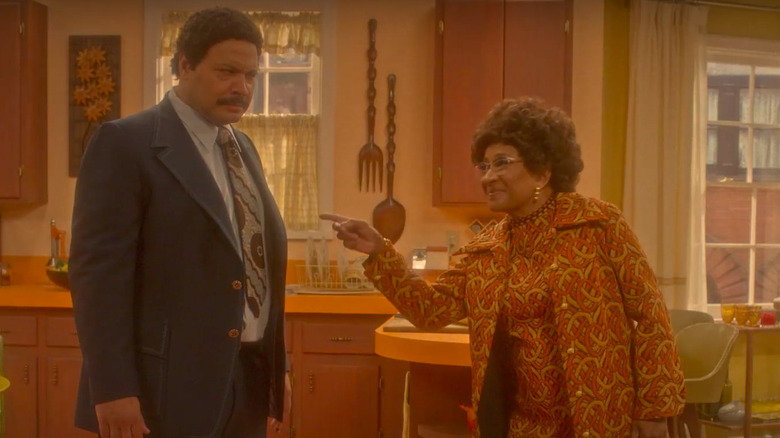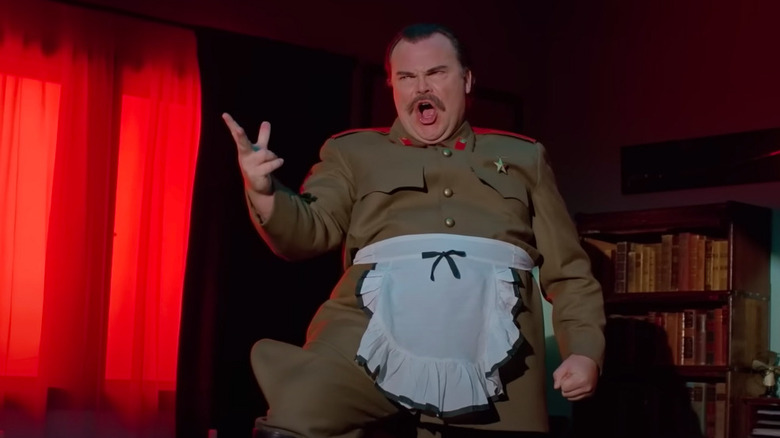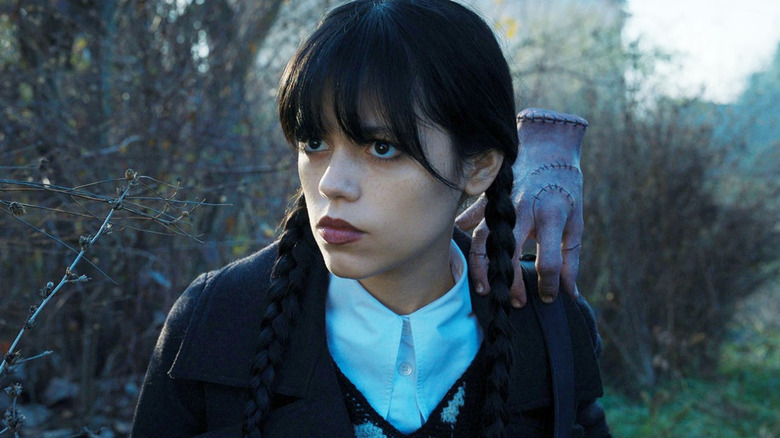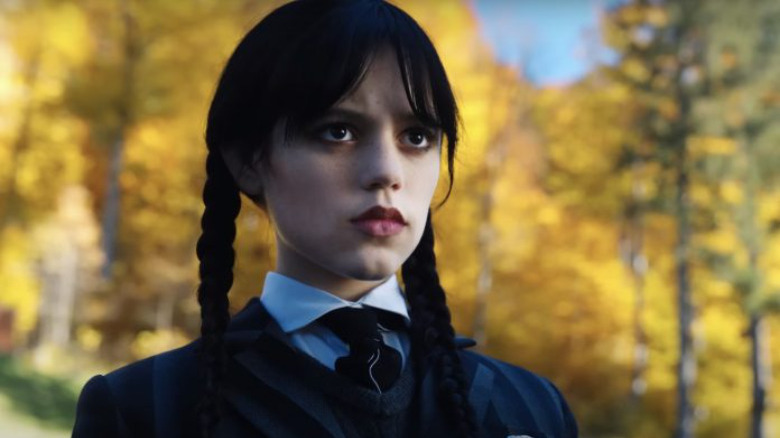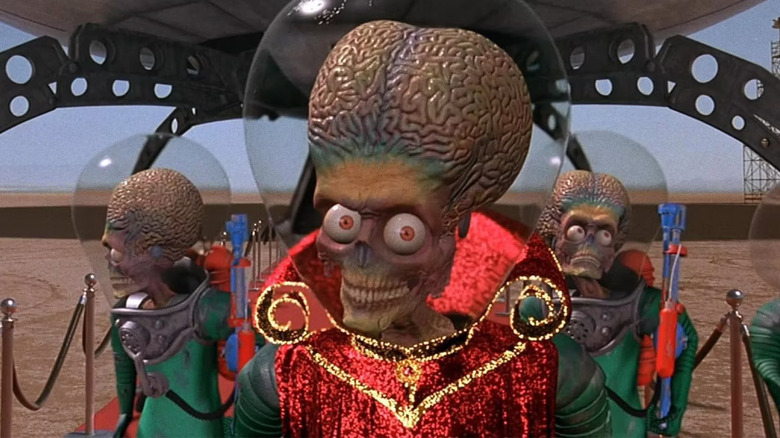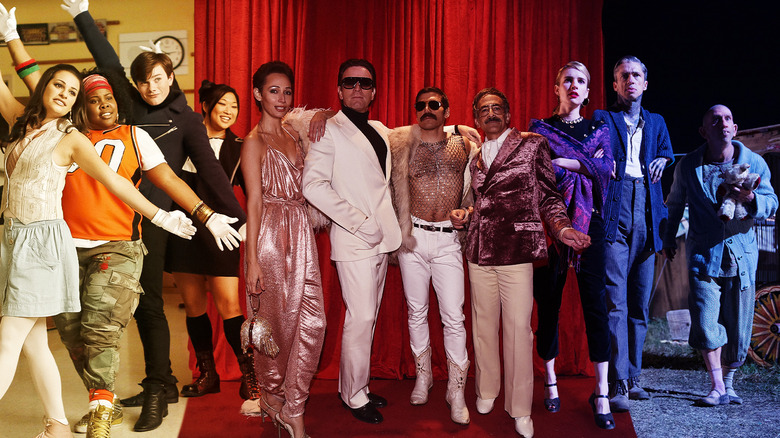
Ryan Murphy made headlines back in 2018 when the prolific producer of TV hits ranging from "Glee" to "American Horror Story" signed a massive content deal with Netflix, estimated at a record-breaking $300 million. Since then, Murphy and his collaborators have delivered a head-spinning array of projects for viewers of the streaming service, in addition to various shows for network television and the FX basic cable brand.
Known for audacious and outrageous plot twists, compelling characters, and assembling a repertory company comprised of some of Hollywood's finest actors, Murphy has managed to leave his imprint on everything he touches. Realistically speaking, Murphy has increasingly spread himself thin as he continues to pump out more and more television content within multiple genres. Though everything remains thoroughly on brand, not all of those projects achieve the same level of quality. Occasional stumbles are inevitable. With that in mind, read on for a roundup of every Ryan Murphy TV show ranked worst to best.
22. The New Normal (2012)
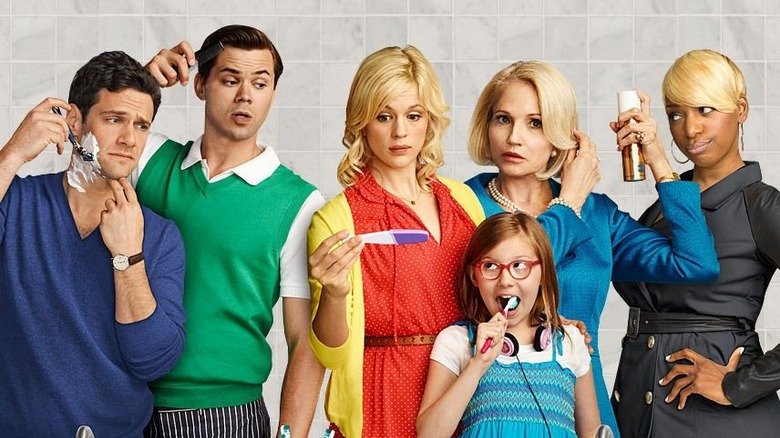
Sadly, one show must be placed at the bottom of the list, and it's this 2012 series that remains (so far) Ryan Murphy's only foray into the sitcom genre. Justin Bartha and Andrew Rannells starred as, respectively, David and Bryan, a well-to-do Los Angeles gay couple. Bryan represents something of a stand-in for series co-creator Murphy, given that the character produces a successful "Glee"-like TV series called "Sing." Anxious to start a family, they hire recently separated Ohio waitress Goldie (Georgia King) to be their surrogate. To keep her close during her pregnancy, they encourage her to move in with them, with her nine-year-old daughter Shania (Bebe Wood) in tow. Further complicating this scenario is Goldie's grandmother, Jane (Ellen Barkin), a staunch Republican and raging homophobe, who follows Goldie with the aim of bringing her back and reuniting her with cheating husband Clay (Jayson Blair). Also tossed into the mix: "Real Housewives of Atlanta" alum NeNe Leakes as Bryan's production assistant on his TV show.
The show elicited mixed reviews and dismal ratings (despite winning favorite new TV comedy at the People's Choice Awards), and dredged up a fair amount of controversy when Salt Lake City's NBC affiliate refused to air the show at all due to content that the afilliate's CEO deemed to be "inappropriate" during the so-called family viewing period between 8 and 9 p.m. NBC canceled "The New Normal" after one season.
21. The Glee Project (2011)
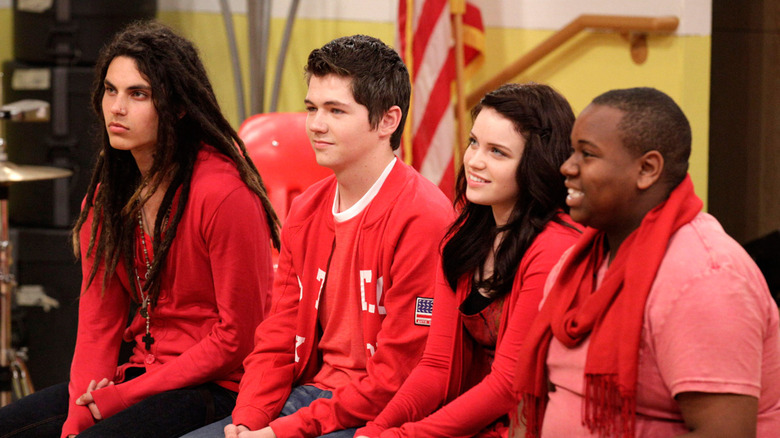
The success of "Glee" not only spawned a live concert tour in which the cast sang songs from the show (which was documented in a 3D theatrical film), but also a reality competition dubbed "The Glee Project" that aired for two seasons. A scaled-down take on "American Idol," the show invited amateur singer-actors to compete in what was essentially an extended audition for "Glee," with the winner awarded a seven-episode guest-starring arc on the show. While "Glee" casting director Robert J. Ulrich oversaw "The Glee Project," the mothership's stars (including Jane Lynch, Darren Criss, and Dianna Agron, as well as Murphy himself) popped in to serve as mentors and guest judges. Darren McGinty and Samuel Larson were tied as winners for the first season, and each appeared on "Glee," in the promised seven episodes, while runners-up Lindsay Pearce and Alex Newell each earned a two-episode guest arc.
Even if the show did not have the same wide appeal as Murphy's other TV series, it proved to be wildly successful in finding and nurturing talent. Newell's character, transgender student Wade Adams (a.k.a. Unique) resonated so much with viewers that the actor was invited back for additional episodes, ultimately becoming a series regular in Season 5. Meanwhile, Season 2 winner Blake Jenner likewise stuck around long after his initial seven episodes and was also hired as a series regular for Season 5.
20. 9-1-1: Lone Star (2020)
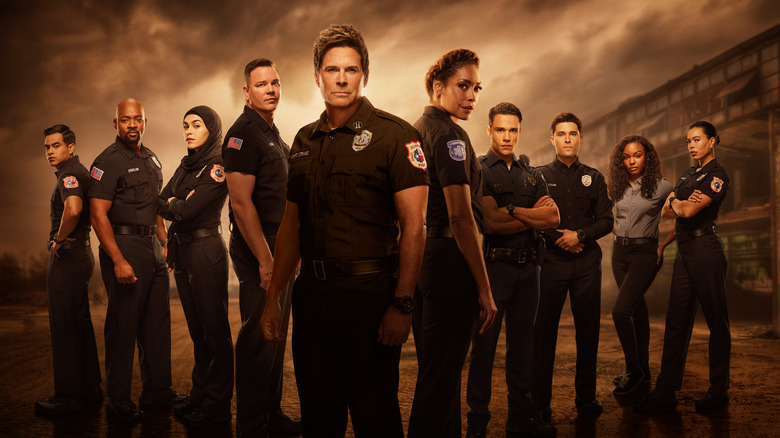
"9-1-1" may not have been as beloved by critics as many of Murphy's other television projects, but the series proved successful enough that Fox ordered a spinoff. Premiering in 2020, "9-1-1: Lone Star" follows the same procedural format, with the key difference being the locale: Austin, Texas, versus Los Angeles (both shows, however, are shot in L.A.). "9-1-1: Lone Star" was also conceived as a star vehicle for Rob Lowe. He plays Owen Strand, a New York City firefighter who relocates to Texas after being recruited by an Austin firehouse that lost nearly all its firefighters in a horrific tragedy. Liv Tyler departed after Season 1 and was replaced by Gina Torres.
If anything, "Lone Star" feels even more melodramatic than its predecessor, with less reliance on outlandish, over-the-top disasters and an emphasis on Lowe, whose character is happy to share his skincare regimen and nutrition tips in what can only be described as a sly nod to his "Parks and Recreation" character, Chris Traeger. Ultimately, though, the show's appeal lies in viewers' eagerness to return episode after episode for a disaster of the week framed with a healthy dose of Lowe's not-inconsiderable charm.
19. 9-1-1 (2018)
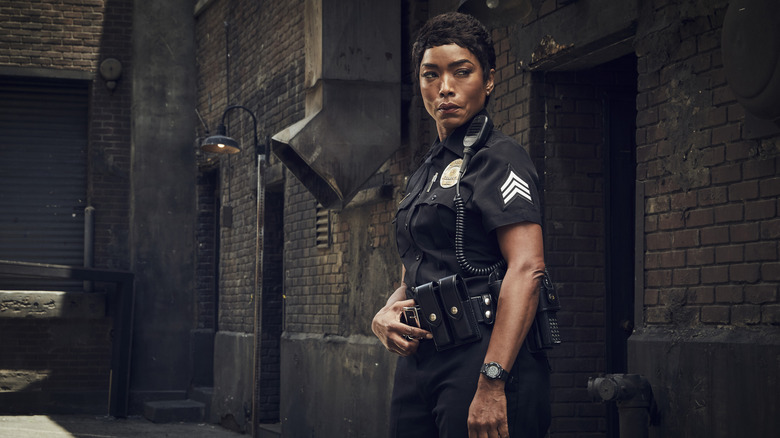
"Pedestrian" isn't a word typically associated with a Ryan Murphy television production, yet it is a somewhat apt one for "9-1-1." Airing on Fox, "9-1-1" represents Murphy tackling a conventional network television procedural drama along the lines of Dick Wolf's "Chicago" shows. Boasting a cast headlined by Peter Krause, Jennifer Love Hewitt, and Murphy regular Angela Bassett, the series tracks the exploits of Los Angeles first responders, a group that includes cops, firefighters, and EMTs. What makes "9-1-1" stand out somewhat from similar TV dramas (i.e. "Grey's Anatomy" spinoff "Station 19," "Chicago Fire," etc.) is Murphy's penchant for over-the-top storylines. Beyond the usual car wrecks, apartment fires and abusive exes, there have been bombings, an explosive train derailment, and, in arguably the series' biggest disaster, a massive earthquake that devastated the entirety of Los Angeles.
"9-1-1" may simply not be weird enough for fans of "American Horror Story" to sink their teeth into, but the show has nonetheless managed to carve out a solid niche for itself in network television. As of early 2023, "9-1-1" was in its sixth season, with no indications of an imminent cancelation.
18. Popular (1999)
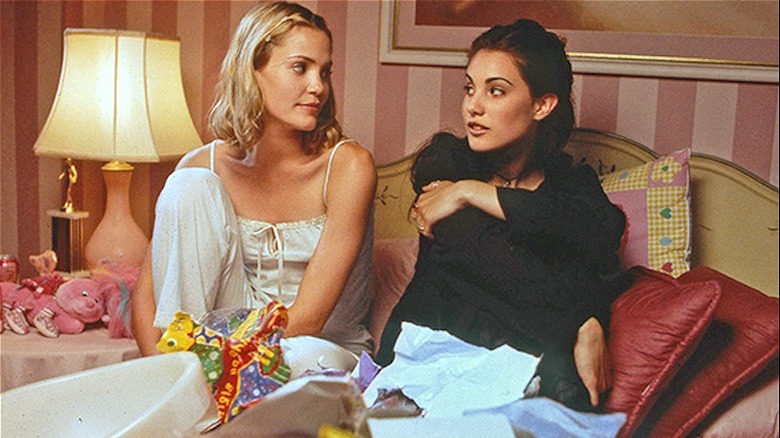
Murphy broke into television with the 1999 series "Popular" for the now-defunct network known as The WB (which eventually merged with fellow "netlet" UPN to become The CW). Co-created by Murphy and Gina Matthews, the series focused on two teenage girls at opposite ends of the high-school popularity spectrum. Leslie Bibb starred as popular cheerleader Brooke McQueen, while Carly Pope portrayed not-so-popular Sam McPherson, an aspiring journalist who works for the school newspaper. When Brooke's mom and Sam's dad wind up falling in love and become engaged, however, these disparate teens — and, by extension, their respective friend groups — are forced to awkwardly co-mingle. Leslie Grossman stood out among a large supporting cast as wealthy, vacuous cheerleader Mary Cherry, and the actor would go on to become part of Murphy's repertory company in future projects, including several seasons of "American Horror Story."
Not entirely representative of the type of series that Murphy would produce in the future, "Popular" does share more than a passing thematic similarity to "Glee," "Scream Queens," "Feud," and even certain seasons of "American Horror Story." In fact, there's something of an argument to be made that "Popular" is basically "Glee" without the music. And while it only hints at the television brilliance that lay ahead as his career progressed, "Popular" remains a stunningly solid and well-realized series when considering it represents Murphy's first foray into TV.
17. The Politician (2019)
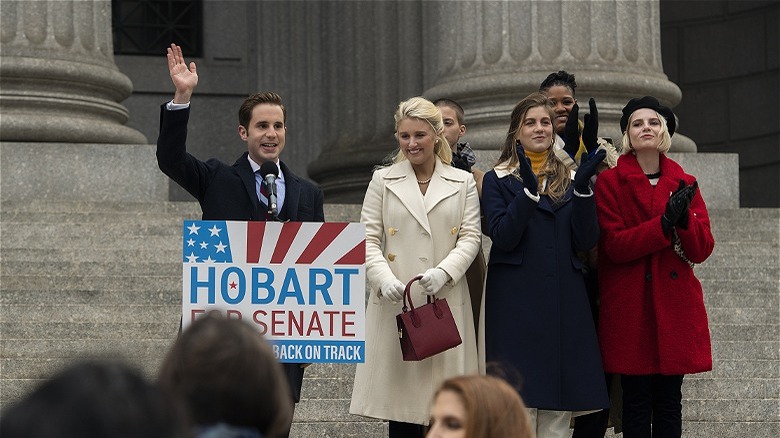
Of all the shows within Murphy's ouvre, "The Politician" may be the strangest. Ostensibly a dark comedy, "The Politician" was the first series to emerge from Murphy's heavily hyped $300-million deal with Netflix. Ben Platt starred as Payton Hobart, a privileged teenager who has known since childhood that he would one day become president of the United States. Before he can achieve that lofty goal, however, he must win a far more modest election to become student body president of St. Sebastian High in tony Santa Barbara, California. The only thing standing in his way is his opponent, the more-popular-than-him River Barkley (David Corenswet), leading Payton to instigate a level of political dirty tricks not usually associated with high school.
In addition to Platt, the first season featured a supporting cast that included Gwyneth Paltrow (as Payton's adoptive mom), Zoey Deutch, Lucy Boynton, Bob Balaban, and Murphy favorite Jessica Lange. Season 2 takes a bit of a time jump, with Payton now a student at NYU and running for New York State Senate. That places him at odds with Dede Standish (Judith Light), New York State Senate Majority Leader, and her loyal and devious chief of staff, Hadassah Gold (Bette Midler). Season 1 earned accolades (including Emmy, Golden Globe, and GLAAD Media Award nominations), Season 2 was received far less warmly, and Netflix opted not to renew "The Politician" for a third season.
16. American Horror Stories (2021)
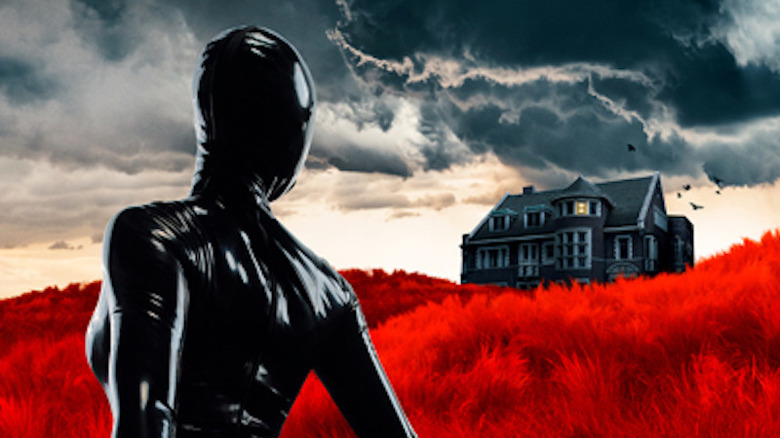
A spinoff of "American Horror Story," Murphy's "American Horror Stories" takes the series' anthology premise and runs with it; instead of each season telling a standalone story, "Stories" spins a different story in each episode. To sweeten the pot, some of those stories connect with previous seasons of "American Horror Story," including an episode that tied to the "Murder House" season, and another that fed into "Coven." These aren't the only links to the original show. Murphy also populates "American Horror Stories" with actors from the original series, including Matt Bomer, John Carroll Lynch, Billie Lourd, Cody Fern, Dylan McDermott, Denis O'Hare, Gabourey Sidibe, and more. Other stars to appear run the gamut, ranging from Paris Hilton to Danny Trejo.
The show's format ultimately proves to be both its strength and its weakness, with the quality and scariness of individual episodes all over the map. A Season 1 entry titled "Ba'al," for example, fired on all cylinders. A "Rosemary's Baby"-inspired terror tale, it stars Billie Lourd as a woman so desperate to have a child that she turns to a demonic totem to ensure pregnancy. Take a wild guess how that turns out for her. On the other end of the spectrum, we find "The Naughty List," the limp and predictable story of a bunch of obnoxious social media influencers who, realizing their popularity is waning, up the ante by pulling a humiliating prank on a department store Santa, who retaliates in homicidal fashion.
15. Ratched (2020)
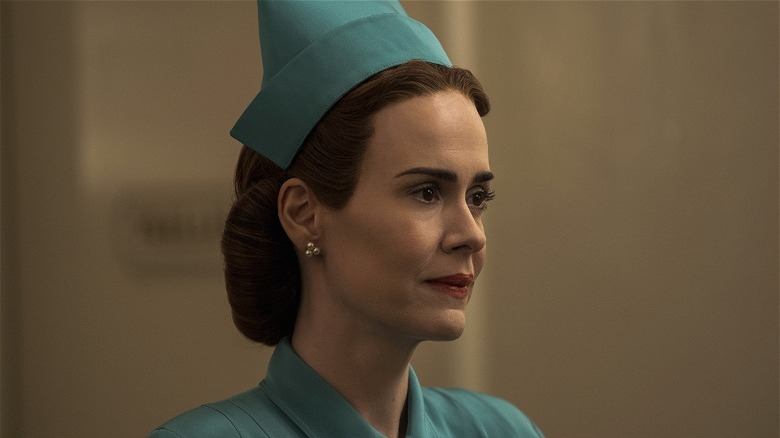
High concept doesn't come any higher than "Ratched," Murphy's "One Flew Over the Cuckoo's Nest" prequel. Here, he presents the outlandish origin story of the primary antagonist in the 1975 movie and novel upon which it was based: sadistic Nurse Ratched, played by "American Horror Story" regular Sarah Paulson. As opposed to the movie, which featured the middle-aged version of the character, "Ratched" introduces Mildred Ratched in her younger years, revealing the twisted motivation behind her cruelty (which involves her murderous, priest-killing brother and a doomed lesbian affair with the press secretary for a powerful politician). The storyline felt somewhat overbaked, but Murphy did not skimp on acting talent; along with Paulson, the cast included Finn Wittrock and Cynthia Nixon (as the aforementioned brother and love interest, respectively), along with Judy Davis as a fellow nurse, Jon Jon Briones as Dr. Hanover, the anesthetic-addicted head of the psychiatric institution Mildred infiltrates, and Sharon Stone as wealthy socialite Lenore Osgood, who hires a hit man (Corey Stoll) to whack Hanover for treating her son's serial-killer tendencies by amputating some limbs.
"Ratched" is as overblown and over-the-top as anything fans would expect from Murphy. It also features first-rate performances and cinematography (capturing the lush Northern California setting) that is nothing less than stunning. However, the flagrant campiness that propels the series is also its biggest drawback, infusing the whole production with a vibe just shy of silliness.
14. Impeachment: American Crime Story (2021)
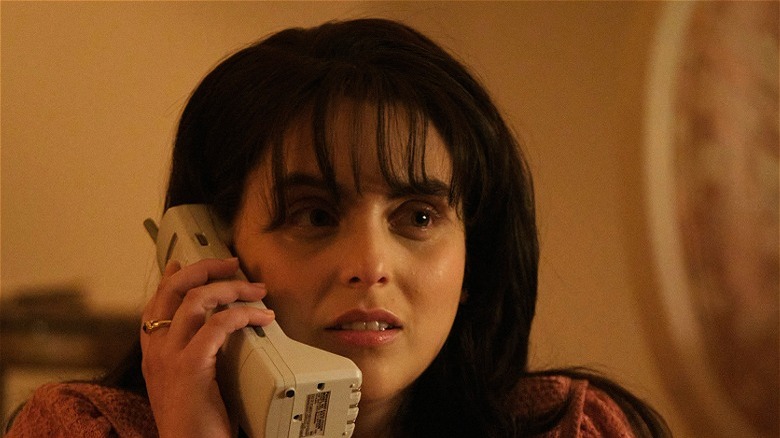
For the third season of "American Crime Story," Murphy and his crew dramatized the events that led to the impeachment of President Bill Clinton. With Monica Lewinsky as consultant and executive producer, "Impeachment" lays out the story of how a naive but well-connected White House intern (Beanie Feldstein as Lewinsky) wound up the focal point of Republican-led impeachment hearings. Even with Clive Owen and Edie Falco as the president and Hillary Clinton, respectively, the showiest role went to Sarah Paulson, practically unrecognizable in extensive padding and prosthetics as Lewinsky's unfaithful confidante, Linda Tripp. Annaleigh Ashford plays Paula Jones, while Margo Martindale co-stars as rightwing literary agent and Republican operative Lucianne Goldberg.
The performances were solid all around. Falco's Hillary Clinton in particular was a standout, barely containing her simmering rage at her husband's feckless infidelity while also holding a steely determination not to be portrayed as a victim. It was Paulson's depiction of Tripp, so villainous as to almost be cartoonish, that proved one of the show's weaker elements, a rare stumble by the usually excellent actor. Previous seasons of "American Crime Story" managed to add nuance and detail to stories that everyone thought they knew everything about. The "Impeachment" season struggled mightily with that task. Ultimately, there was just so much going on — subplots featuring internet pioneer Matt Drudge (Billy Eichner), and the naive Jones being devoured by the media, for example — that it lacked cohesion.
13. Hollywood (2020)
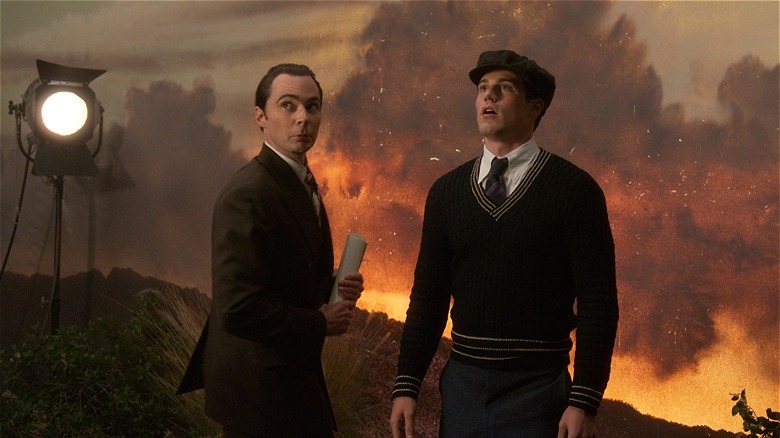
"Hollywood" is arguably the most audacious, ambitious project in the Murphy pantheon. Set in late-1940s Hollywood, the show centers on Jack Castello (David Corenswet), a WWII veteran and aspiring actor who takes a job at a gas station owned by Ernie West (Dylan McDermott), who is actually a pimp whose attendants are sex workers who discreetly service famous clients of both sexes. It's through his illicit new profession Jack gains entry into the movie biz. In Murphy's blend of fact and fiction, Rock Hudson (Jake Picking) carries out an openly gay relationship with African-American screenwriter Archie Coleman (Jeremy Pope), while a studio head (Rob Reiner) suffers a heart attack that allows his wife (Patti LuPone) to take the reins, with her first big project as studio head bringing all these various characters together by producing Archie's controversial script, featuring an interracial romance. One of the show's most intriguing characters is Henry Wilson (Jim Parsons), a predatory gay agent whose reptilian aura of menace is a million miles away from the actor's "The Big Bang Theory" protagonist.
The miniseries presented a wish-fulfillment fantasy depicting Tinseltown not precisely as it was, but how Murphy wishes it could have been. In fact, he made a major point here: that Hollywood could have been a racially inclusive, gay-friendly paradise if only the right people had shed their biases and prejudices, but the whole enterprise ultimately collapsed under the weight of its own pretensions.
12. The Assassination Of Gianni Versace: American Crime Story (2018)
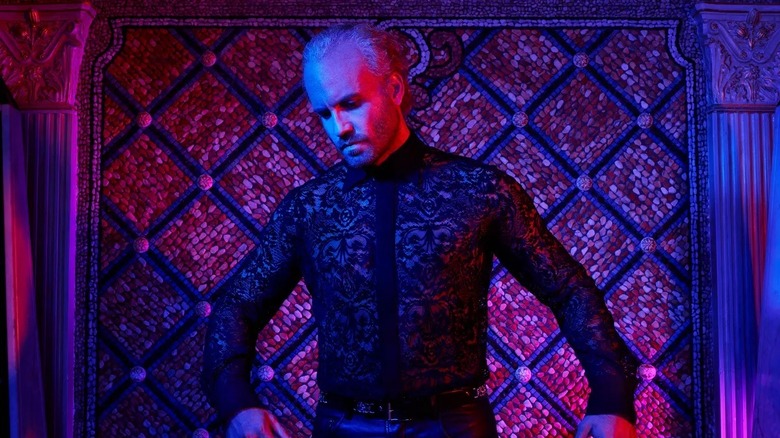
Following the massive success of "The People v. O.J. Simpson," the second season of "American Crime Story" was initially intended to focus on Hurricane Katrina's devastation of New Orleans, but that idea was ultimately aborted. Instead, Murphy and his team recounted the murder of fashion designer Gianni Versace (Edgar Ramirez) by killer Andrew Cunanan ("Glee" alum Darren Criss). Despite the season's subtitle, "The Assassination of Gianni Versace" was really the story of Cunanan, a self-loathing gay man who embarked on a bizarre killing spree that culminated with him gunning down Versace on the front steps of his palatial Miami estate.
In addition to the strong supporting cast (including Ricky Martin as the designer's boyfriend, Antonio D'Amica, and Penélope Cruz as Donatella Versace), the story unfolds in an innovative style, beginning with Versace's murder and then moving backward, with each subsequent episode taking place prior to the previous one. That storytelling technique resulted in a series that was more slow-burn than explosive. Reviews were generally positive, but the season never came close to receiving the kind of acclaim heaped upon its predecessor. Meanwhile, Murphy was hit with backlash from members of the Versace family, who blasted the project as "a work of fiction." In a statement to Entertainment Weekly, Murphy pointed out that the script was based on Vanity Fair writer Maureen Orth's reporting, and he described it as "a work of non-fiction obviously with docudrama elements. We're not making a documentary."
11. Halston (2021)
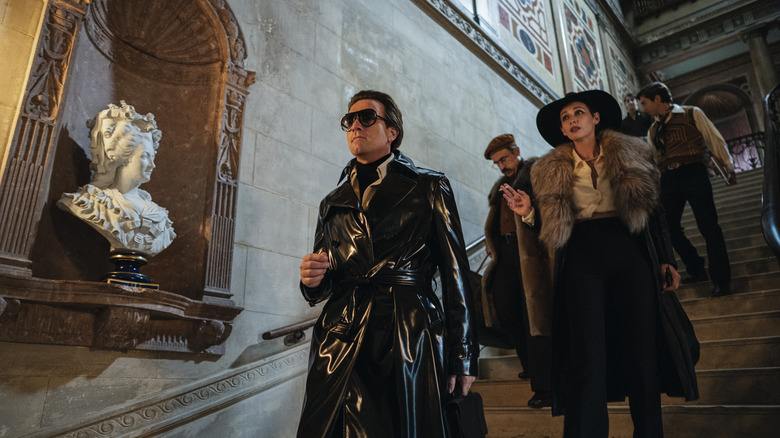
In the wake of "The Assassination of Gianni Versace: American Crime Story," Murphy put the spotlight on another iconic fashion designer via "Halston," his 2021 miniseries for Netflix. With Ewan McGregor as the titular Halston, the production also offered the by-now expected spectacle of actors cast as famous folks from the past. In "Halston," this included Krysta Rodriguez as Liza Minelli, Halston's friend and muse; Rory Culkin as film director Joel Schumacher; and Mary Beth Peil as iconic dancer and choreographer Martha Graham. Chronicling Halston's rise in the 1960s to the highest echelons of the fashion industry, "Halston" captured the shiny, glitzy glamour of the designer's Studio 54 heyday in the late 1970s without shying away from the severity of his escalating cocaine addiction and the havoc it brought to his life, personally and professionally.
Created by Sharr White and directed by Daniel Minahan, Murphy wasn't directly involved in "Halston," but took the brunt of criticism for the story's superficiality and lack of depth. And, as was becoming customary for Murphy's unauthorized biographical docudramas about famous folks, "Halston" was blasted by the late designer's estate, which issued a statement decrying the miniseries for delivering an "inaccurate, fictionalized account" of Halston's life. Ultimately, McGregor's captivating performance elevates the project, transforming what could have become a somewhat rote biopic into a highly watchable series. McGregor deservedly won an Emmy in the outstanding lead actor in a limited or anthology series or movie category.
10. The Andy Warhol Diaries (2022)
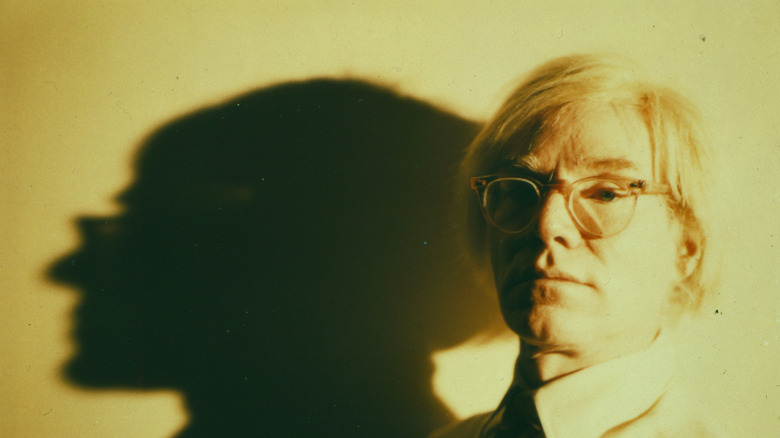
Murphy shifted from scripted series for his first documentary project with "The Andy Warhol Diaries," a six-part Netflix docuseries that premiered in 2022. The series, directed by Andrew Rossi and produced under Murphy's banner, presented the most detailed and expansive look to date at the quixotic artist who upended the art world with paintings of soup cans and seemingly predicted today's social media-fueled culture when he famously quipped, "In the future, everyone will be world-famous for 15 minutes." Perhaps the most unique conceit in the series was Warhol — who died in 1987 — providing his own narration (actually, the voice of actor Bill Irwin, enhanced by AI, reading entries from Warhol's diary).
In addition to the expectedly star-studded roster of interviewees (a lengthy and eclectic list that includes Rob Lowe, Jerry Hall, Debbie Harry, John Waters, and various denizens of Warhol's Factory), the series shed light on the personal life that Warhol managed to keep entirely private throughout his life — particularly his relationship with interior designer Jed Johnson, his boyfriend of more than a decade, who remained by Warhol's side while avoiding the limelight himself. All in all, "The Andy Warhol Diaries" was considered a critical triumph, a fascinating and fast-paced deep dive into how shy and awkward Andrew Warhola from Pittsburgh reinvented and redefined himself to become one of the most famous figures of the 20th century.
9. Nip/Tuck (2003)
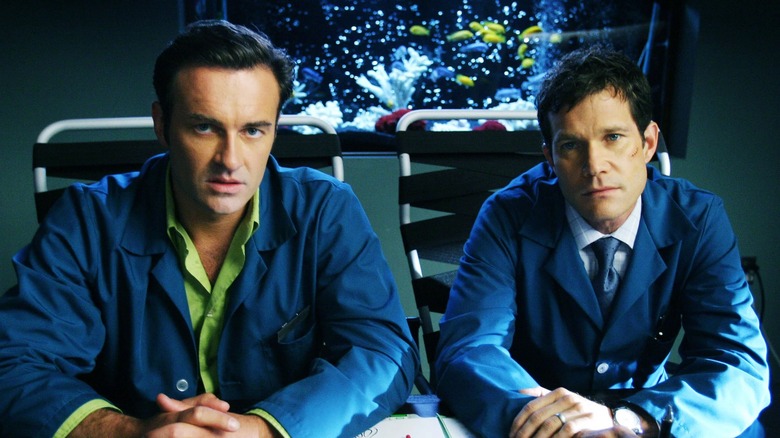
Murphy's television follow-up to "Popular," "Nip/Tuck" marked the beginning of his lucrative association with FX while also proving his adeptness as a writer and producer beyond teen dramedy. The series explored the exploits of Dr. Christian Troy (Julian McMahon) and Dr. Sean McNamara (Dylan Walsh), top plastic surgeons who share a lucrative Los Angeles practice. In addition to witnessing the physicians' various and usually button-pushing surgeries ("Tell me what you don't like about yourself," one of the docs would invariably ask a patient at the start of each episode), viewers glimpse the characters' wildly complicated personal lives. Sean is a seemingly solid husband and father (a notion eventually revealed to be a facade) and Troy is a textbook sex addict with impulse-control issues whose insatiable libido compels him to sleep with pretty much every woman he meets (including Sean's wife, played by Joely Richardson).
"Nip/Tuck" definitely pushed the envelope, in terms of audacious and sometimes outright insane storylines, but also by tackling taboo subject matter (pedophilia and incest, for example). Meanwhile, Murphy's particular brand of pitch-black comedy was infused throughout, even within the show's graphic — and unbelievably frequent — sex scenes. Murphy also didn't pull any punches when it came to the surgery sequences, which were arguably even more graphic than the sex scenes. Through it all, Murphy delivered a withering satirical commentary on the cultural obsession with beauty -- and the extreme lengths people will go in attempting to achieve or retain it.
8. Scream Queens (2015)

The blend of horror and comedy that characterized the "Coven" season of "American Horror Story" returned in "Scream Queens," which ran for two seasons on the Fox network. The story surrounds a clique of nasty sorority girls dubbed the Chanels (including Emma Roberts, Billie Lourd, Abigail Breslin, and pop star Ariana Grande) who are targeted by a campus killer costumed as the college's mascot, the Red Devil. Jamie Lee Curtis was a standout as the school's dean, Dr. Cathy Munsch, while other stars included Nick Jonas, Keke Palmer, Nasim Pedrad, Niecy Nash, and "Glee" alum Lea Michele. In season two, Kirstie Alley, John Stamos, and Taylor Lautner entered the fray.
Ultimately, "Scream Queens" leaned far more into its comedy side than the horror aspect, and actually seemed to find its footing in season two (which shifted the setting from a college to a hospital). Unfortunately, ratings for the second season cratered to about half of the first, leading Fox to pull the plug. Interestingly, the show found even more viewers when it began streaming on Hulu, something that did not go unnoticed by Murphy. "Obviously I work for Netflix now, but if I could do anything to bring it back," Murphy told Deadline in 2019. "Emma said she would do it, Lea Michelle [sic] said she would do it, Jamie Lee Curtis, Abigail Breslin, Billie Lourd are all in. So it would depend if Fox wants to do it. I think we'd all do it. I think we're waiting for them to call us."
7. The Watcher (2022)
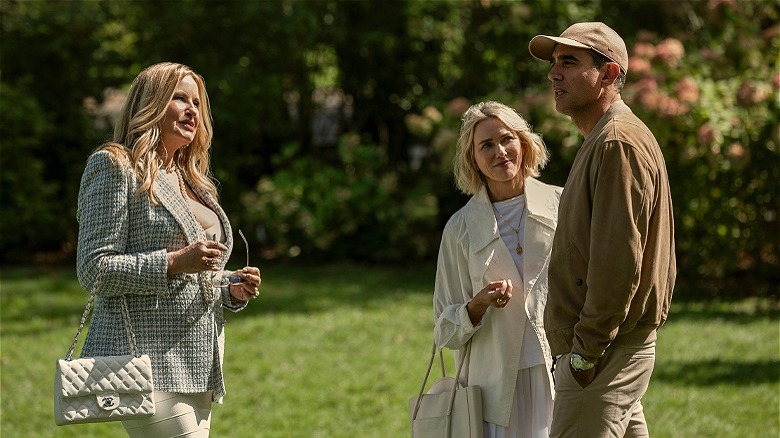
Murphy's penchant for taking a true story and loading it with entertaining yet entirely fictional elements was on full display in "The Watcher," a 2022 Netflix miniseries about upscale couple Dean and Nora Brannock (Bobby Cannavale and Naomi Watts), whose purchase of their suburban dream home devolves into a nightmare when they begin receiving horrifically threatening letters from a mysterious source who knows intimate details about their lives. As the letters become increasingly hostile and disturbing, the Brannocks' sanity is tested in a variety of ways, with nothing as it appears. "The Watcher" also boasted a top-shelf supporting cast including Margo Martindale and Richard Kind as nosy suburbanites Mitch and Mo, Terry Kinney as a supremely creepy neighbor, and Mia Farrow as his malevolently conservative mom.
As the series progressed, Murphy and co-creator Ian Brennan departed from the true story even further by adding one over-the-top plot twist after another, ranging from satanic worship to hidden subterranean tunnels. Jennifer Coolidge, the secret weapon of many a show and movie, once again wove her magic. Here, she plays Karen Calhoun, a realtor who's far more aware of what's happening than she initially lets on. Sleek and stylish, "The Watcher" offered a unique mix of ghoulish pseudo-horror and whodunit mystery that made for an addictive viewing experience — albeit one that ultimately felt a bit hollow in retrospect. The series' success, however, led Netflix to order a second season.
6. Dahmer - Monster: The Jeffrey Dahmer Story (2022)
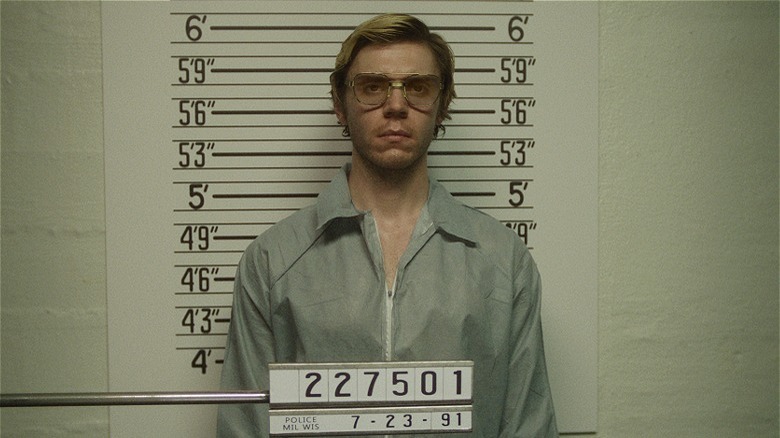
Since the first season of "American Horror Story," Evan Peters has played an assortment of creepy characters in various Murphy-produced programs. None, however, came close to the creepiness of his portrayal of notorious serial killer Jeffrey Dahmer in the 2022 Netflix miniseries "Dahmer - Monster: The Jeffrey Dahmer Story." Over the course of 10 episodes, "Monster" traces Dahmer's journey from troubled child to predatory, cannibalistic murderer. As has become customary, Murphy stacked the show with an impressive supporting cast, including Richard Jenkins as Dahmer's father, Molly Ringwald as his stepmother, "Waltons" alum Michael Learned as his grandmother, and Niecy Nash as a fearful neighbor who was initially ignored when she contacted cops to express her suspicions.
Murphy bit off a lot here, not only attempting to explain the motivation behind Dahmer's depraved acts and the sociopathology that drove them, but also examining how systemic failures and societal inequities contributed. Once again partnered with Ian Brennan, Murphy walked something of a tightrope in explicitly depicting Dahmer's crimes without glamorizing him or exploiting the victims. The extent to which he succeeded there, however, emerged as a matter of debate. In any case, "Dahmer - Monster" ranks as one of the most-watched series in Netflix history, and what was initially conceived as a standalone project has subsequently expanded, with two more installments on the way that Netflix says will "tell the stories of other monstrous figures who have impacted society."
5. Glee (2009)

In 2009, Murphy launched what became his biggest TV hit to that point, "Glee." Created as a reaction to Murphy learning that cash-strapped schools throughout America were forced to cut their drama and music departments, "Glee" focused on the glee club at the fictional William McKinley High School in Lima, Ohio. The resultant vocal group, New Directions, was comprised of a diverse group of students from various social strata, played by a stellar cast of newcomers that initially included Lea Michele (a Broadway-loving Rachel Berry), Cory Monteith (football quarterback Finn Hudson), Chris Colfer (stylish gay student Kurt Hummel), Kevin McHale (Artie Abrams, who uses a wheelchair) and others. Leading the group was teacher Will "Mr. Schue" Schuester, played by Matthew Morrison, who at that time had made a far bigger impact on Broadway than on television. The series' breakout, however, turned out to be improv-comedy genius Jane Lynch as phys ed teacher and cheerleading coach Sue Sylvester, who served as a sort of Wile E. Coyote to Mr. Schue's Roadrunner.
The show transcended mere television hit status by impacting pop culture, with New Directions' cover versions of well-known pop hits topping the iTunes charts. Then there was the aforementioned "Glee Project," "Glee" tour, and movie. As the show's popularity ascended, "Glee" became a destination for A-list guest stars ranging from Gwyneth Paltrow, Britney Spears, and Jeff Goldblum to Kate Hudson, Olivia Newton-John, and Sarah Jessica Parker, and on and on. "Glee" ultimately ran for six successful series, and remains beloved to this day.
4. Feud: Bette Vs Joan (2017)
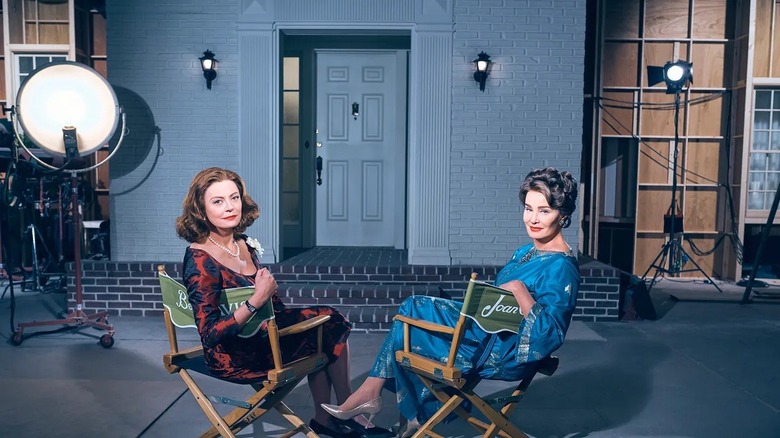
Murphy chased the success of "O.J. Simpson" with a new series dramatizing the world's most famous rivalries, "Feud." The first season (as of March 2023, a second has yet to arrive) scrutinized the battle between fading movie queens Bette Davis (Susan Sarandon) and Joan Crawford ("AHS" alum Jessica Lange), whose mutual hatred only grew when they were forced to work together in the "hagsploitation" classic "What Ever Happened to Baby Jane?" The spectacle of watching two accomplished female movie stars portray screen icons from an earlier era was reason enough to watch. Even better, Sarandon and Lange delivered some of the finest work of their respective careers.
Of course, the story was about much more than the infamous Davis-Crawford feud. It offered an unflinching look at the brutality of Hollywood's treatment of leading ladies who commit the cardinal sin of aging, with their sell-by dates determined by the misogynistic men who ran the studios. With a first-rate supporting cast including Stanley Tucci as studio head Jack Warner, Alfred Molina as director Robert Aldrich, and Judy Davis as gossip columnist Hedda Hopper (and let's not forget Catherine Zeta-Jones as Olivia de Havilland and Kathy Bates as Joan Blondell), "Feud" represented Murphy and his team at the top of their game.
3. Pose (2018)
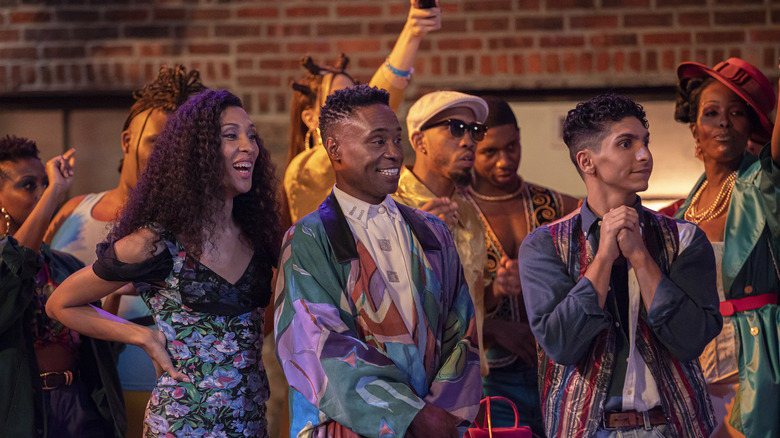
Few shows can lay claim to being truly groundbreaking, but "Pose" is one of those rare series. Set within the ball culture of the 1980s that spawned Madonna's hit "Vogue" and the seminal 1990 documentary "Paris is Burning," "Pose" zeroed in on the lives of a group of gay and transgender friends who pull out all the stops each weekend to compete in fashionably over-the-top pageants hosted by flamboyant emcee Pray Tell (Billy Porter). Co-created by Murphy, Brad Falchuk, and Steven Canal, "Pose" sublimely depicted how a marginalized, vulnerable community rose up to create something that was empowering, enduring, fragile, and truly beautiful.
Not only was the subject matter unlike anything tackled on television before, but the show also made history for hiring transgender actors MJ Rodriguez, Indya Moore, Dominique Jackson, Hailie Sahar, and Angelica Ross, in addition to trans producers, writers, and other behind-the-scenes staffers. Honoring those who fought for LGBTQ rights decades earlier, Murphy and company crafted a lovingly textured time capsule that brought viewers into a very specific place and time, telling a story that was often painful and poignant but was ultimately about triumph in the face of adversity. "It's been a really joyous, amazing experience," Murphy said of "Pose" during an interview with Variety, adding, "I would say without question [it] has been the highlight of my career."
2. The People V. O.J. Simpson: American Crime Story (2016)
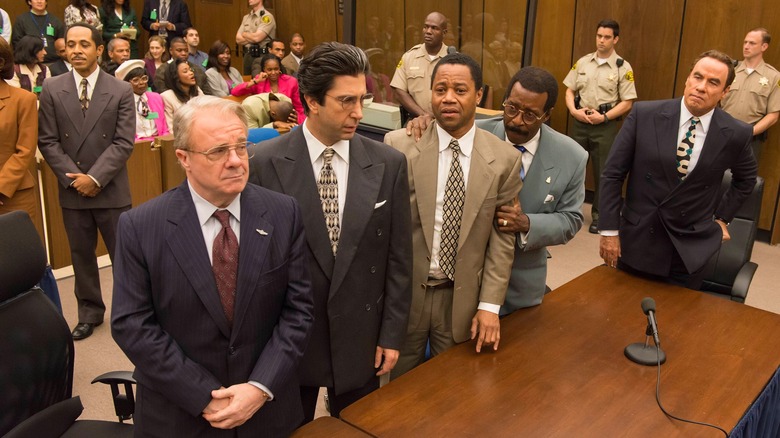
The initial concept behind "American Crime Story" was to dramatize famous true-crime stories that had captivated the media (and public), with the first outing tackling O.J. Simpson's murder trial. By this point, Murphy's cred allowed him to assemble what remains one of the finest casts ever assembled for a TV series, including Sarah Paulson and Sterling K. Brown as prosecutors Marcia Clark and Christopher Darden, Cuba Gooding Jr. as Simpson, Kenneth Choi as Judge Lance Ito, David Schwimmer as Robert Kardashian, and Courtney B. Vance, Nathan Lane, and John Travolta as, respectively, defense attorneys Johnnie Cochrane, Robert Shapiro, and F. Lee Bailey. Then, of course, there were all the minor characters at the fringes of the "trial of the century" that captivated America, ranging from Kato Kaelin (Billy Magnussen) and Faye Resnick (Connie Britton) to LAPD detective Mark Fuhrman (Stephen Pasquale) and O.J. pal Al Cowlings (Malcolm-Jamal Warner).
A critical and commercial smash, "The People v. O.J. Simpson" rates as one of Murphy's crowning achievements, winning multiple Emmys, Golden Globes, and pretty much any other awards for which it was nominated. It was, no question, the prestige TV project of 2016. While there were several extraordinary throughout, it was Paulson's portrayal of Clark, thrown headfirst into the media meat-grinder, that was -- and still is -- the heart and soul of the project, while Brown's portrayal of Darden was a close second. Not surprisingly, both deservedly won Emmys.
1. American Horror Story (2011)
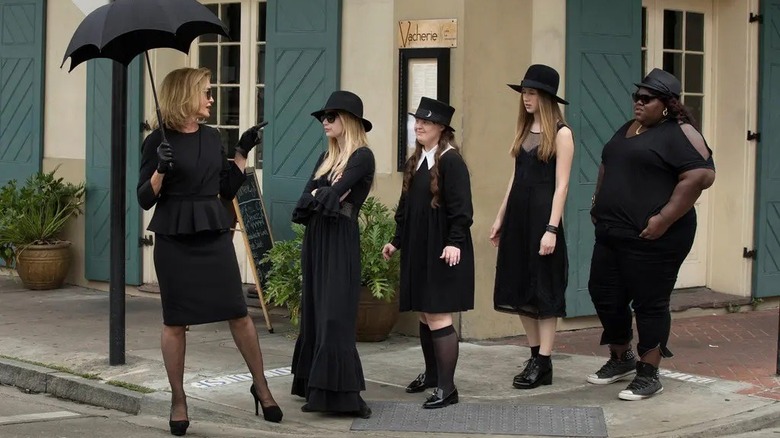
Of all his series, "American Horror Story" is Murphy's jewel in the crown, the one that opened new doors and blazed fresh trails toward the wildly eclectic projects that ensued. Truly, "AHS" was like nothing before it, a terrifying television anthology series planted firmly within the horror genre. Each season related a self-contained story, utilizing a revolving repertory cast, many of whom returned for subsequent episodes as completely different characters (although occasionally reprising earlier ones), including Jessica Lange, Evan Peters, Sarah Paulson, Kathy Bates, Angela Bassett, Emma Roberts, and more.
As is to be expected in an anthology, not all seasons of "AHS" reached the bar established by Season One, dubbed "Murder House," in which a latex-suited entity wreaks havoc on a family who move into a haunted house. Season 2, however, went further, with an over-the-top storyline set in a 1950s insane asylum, featuring such bonkers touches as a demon-possessed nun and alien abduction thrown into the mix. The third season added a healthy dose of humor: the story of a New Orleans coven of witches — one of whom believes herself to be "Rumours"-era Steve Nicks. Other seasons have featured a 1930s carnival freak show, a homicidal clown, a summer camp slasher-movie homage, an evil hotel (inhabited by Lady Gaga, no less), and even the Antichrist. And while the quality of each season varied tremendously, even the less-than-stellar ones were at least weirdly interesting.
Read this next: The 15 Best Anthology TV Series Ranked
The post Every Ryan Murphy TV Show Ranked Worst to Best appeared first on /Film.

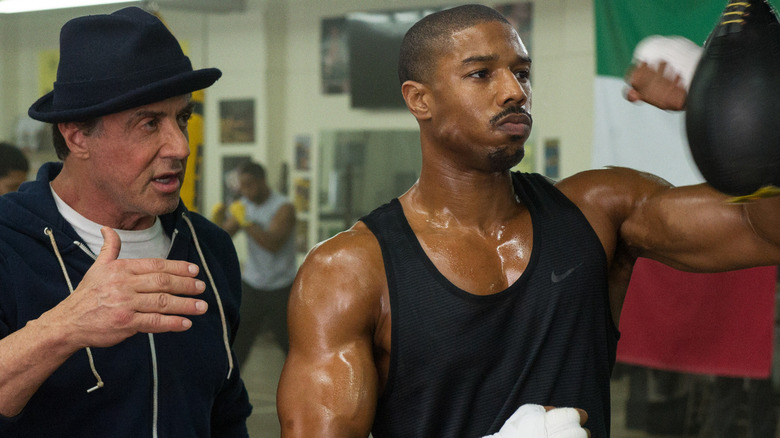
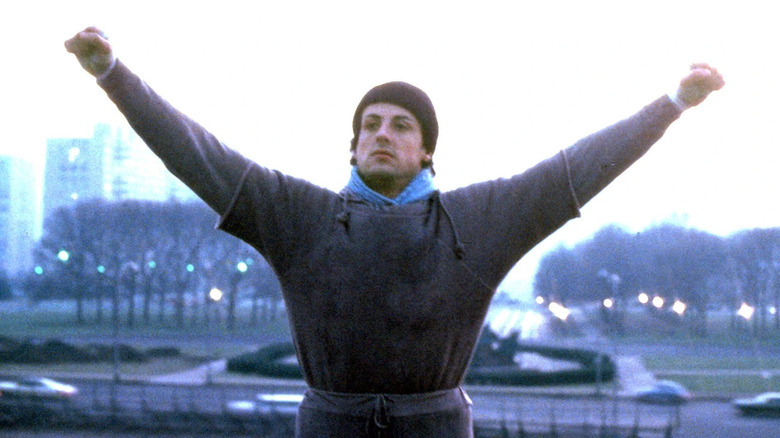
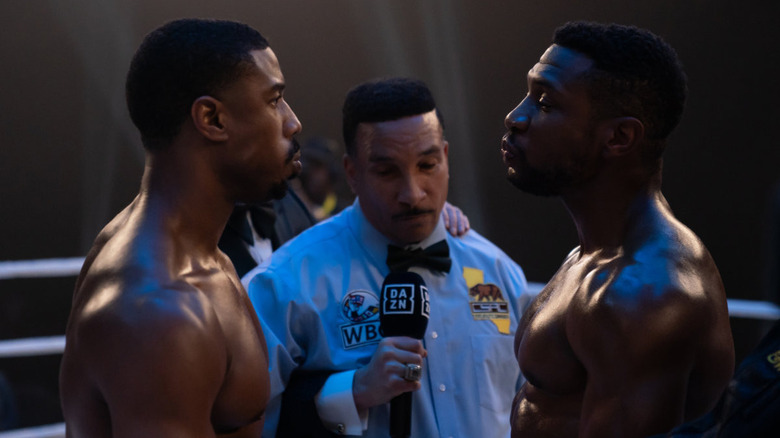
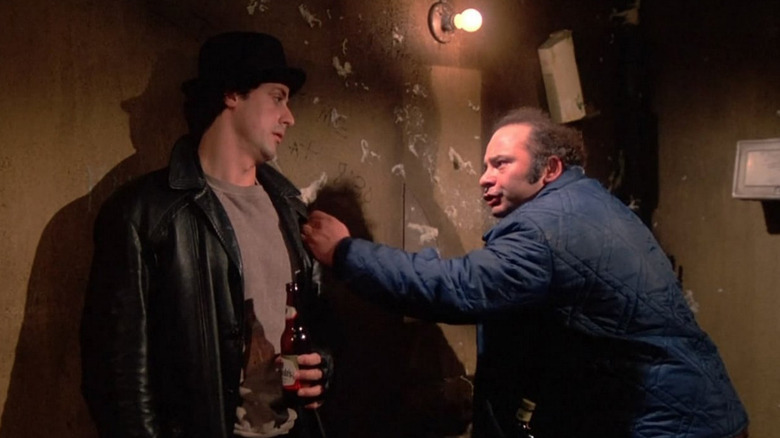
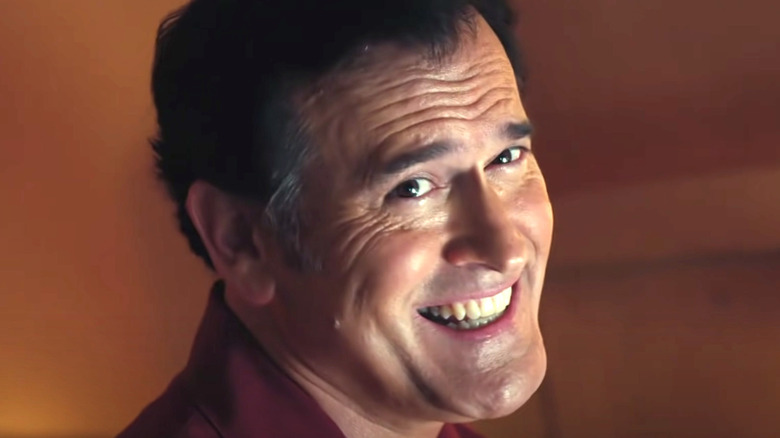
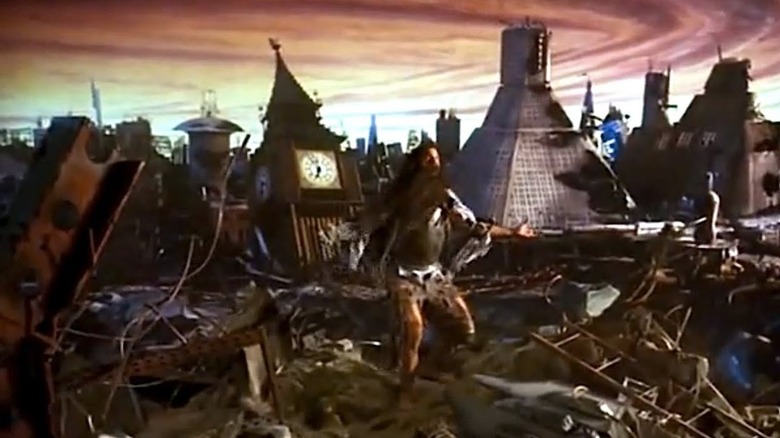
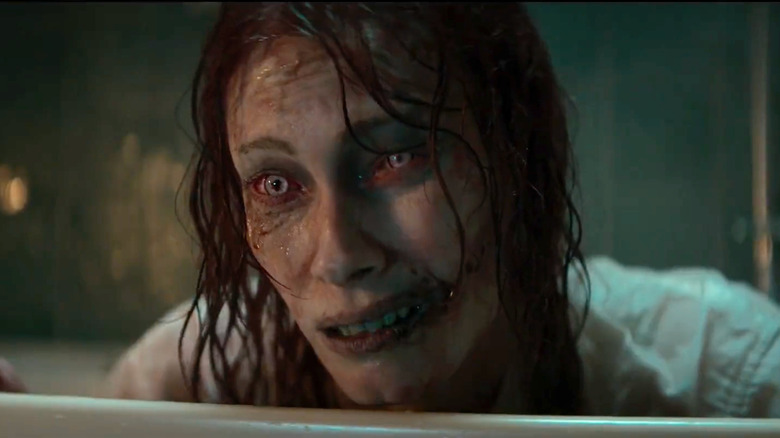
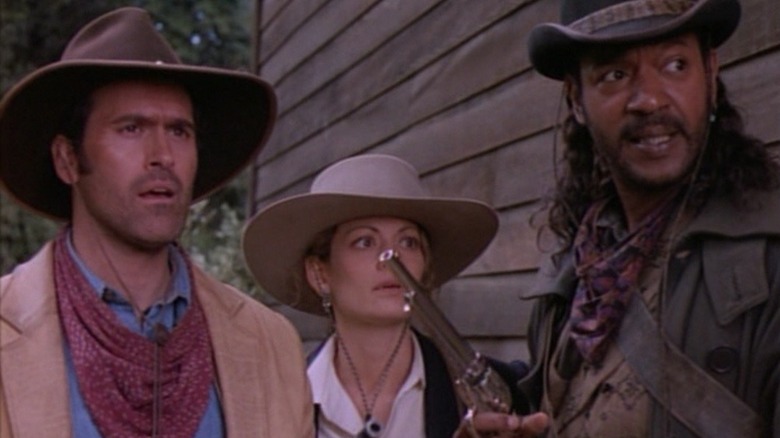
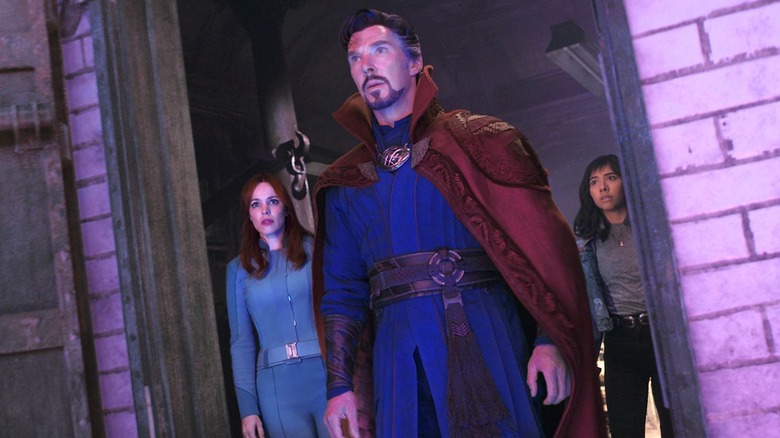
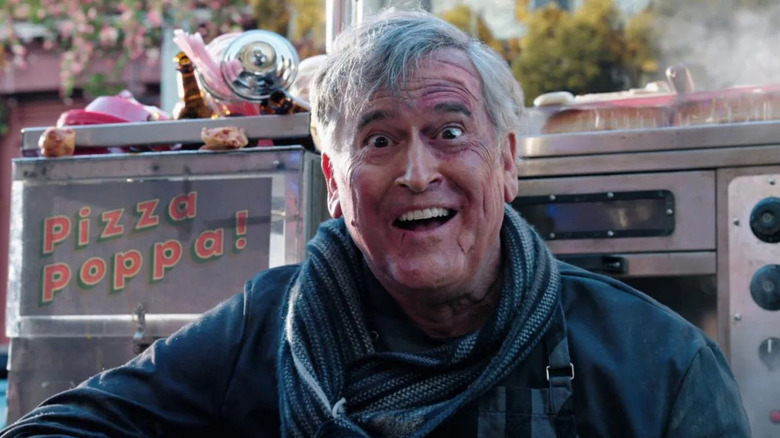
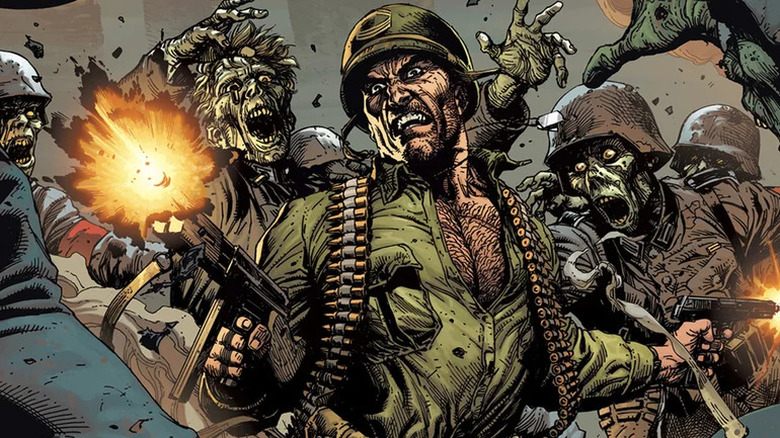
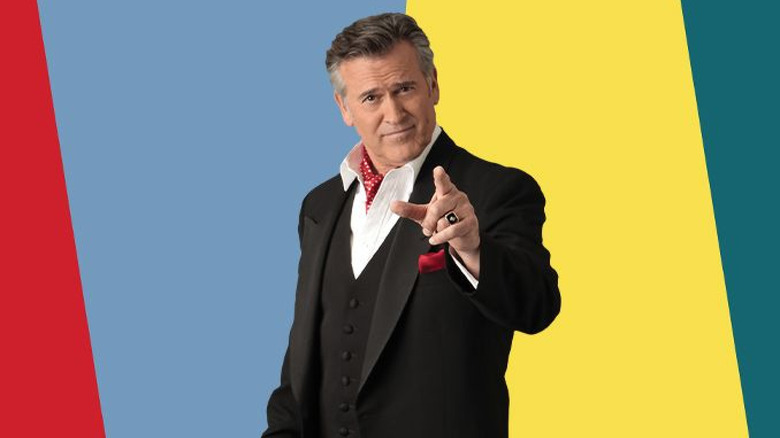
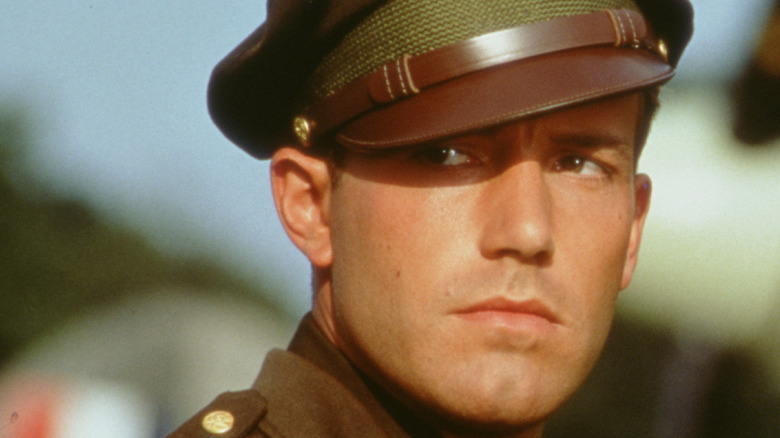
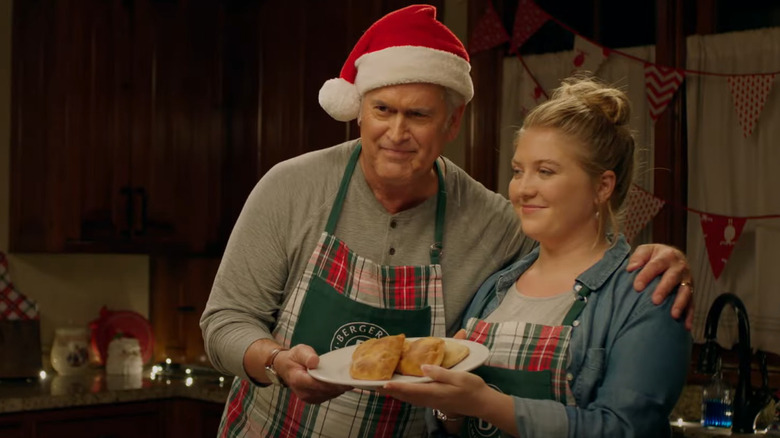
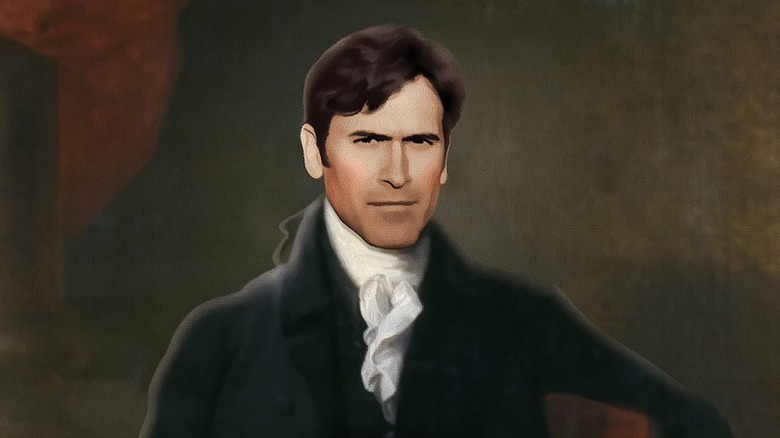

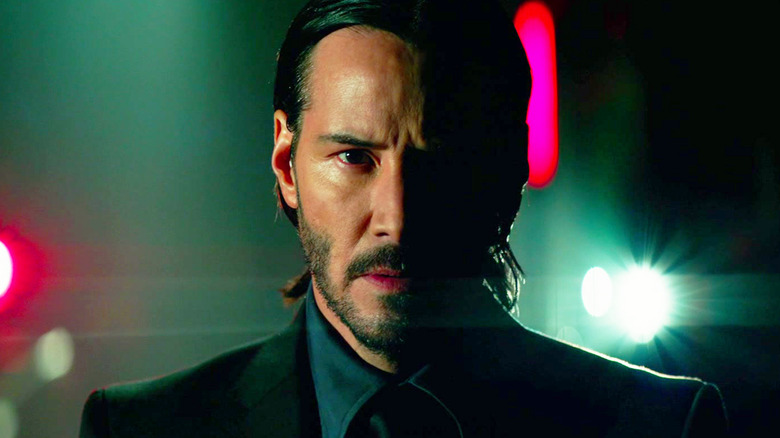
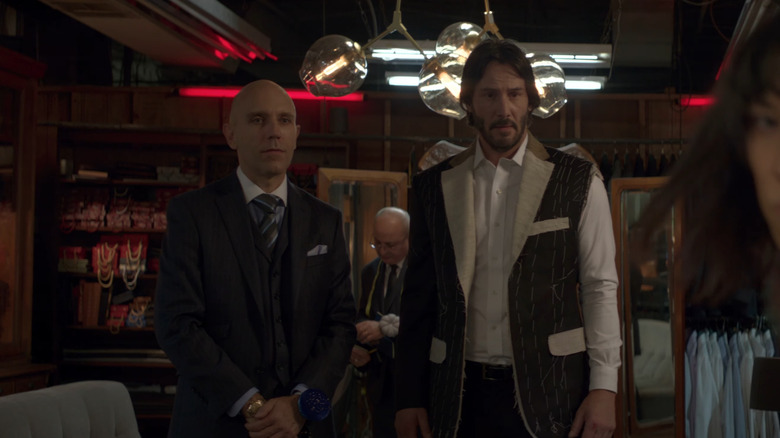
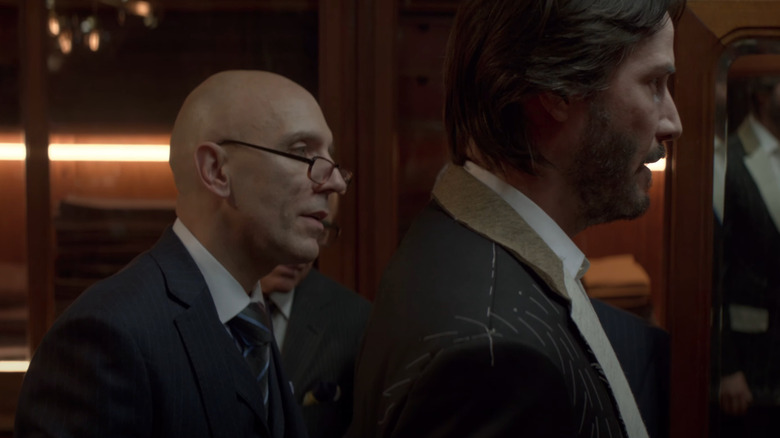























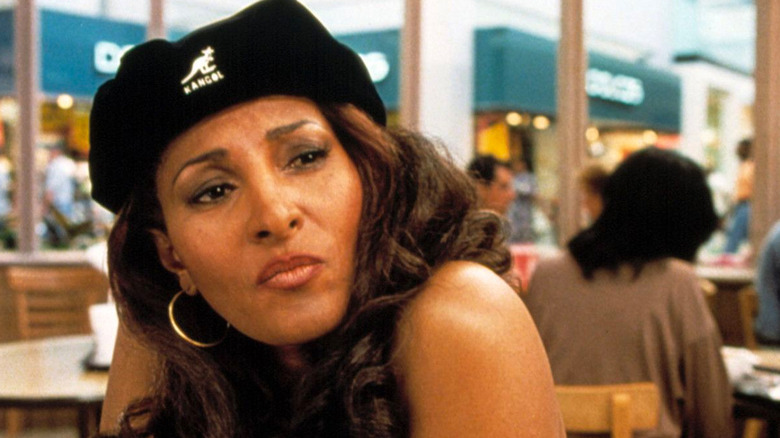
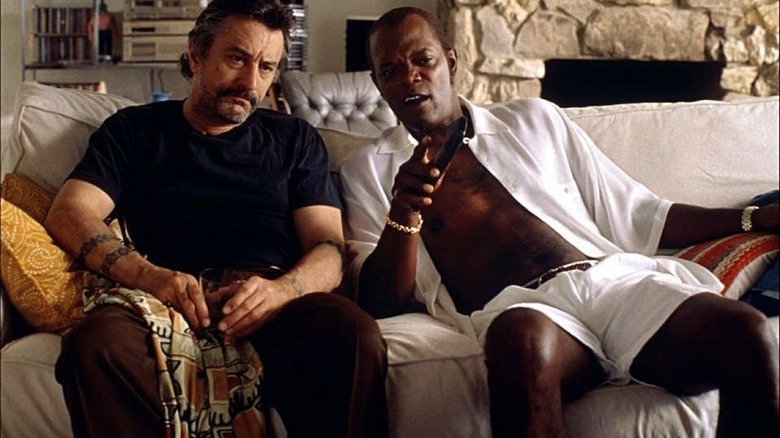
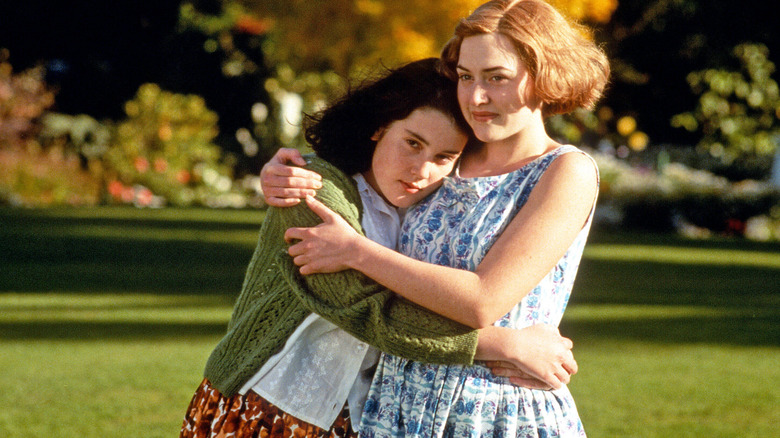
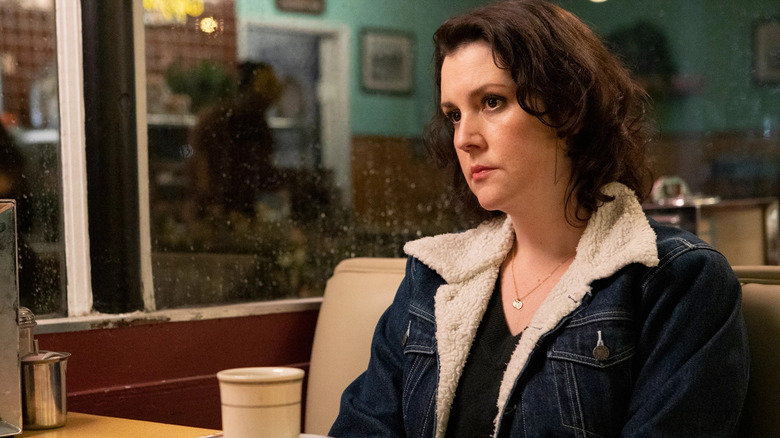
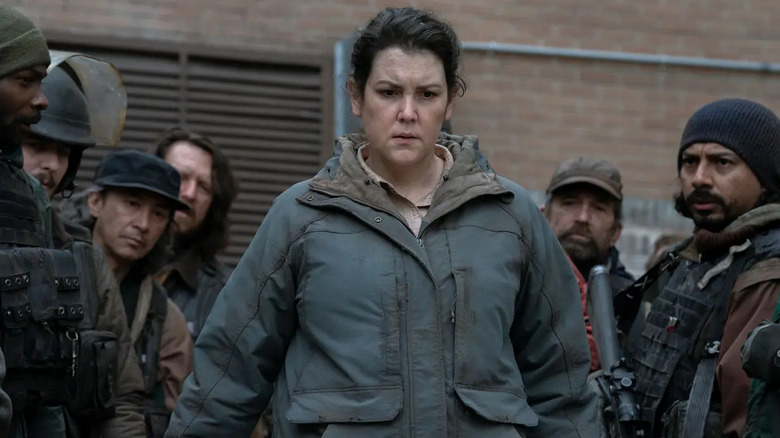
 An ATX case inspired by nature. | With real wood and RGB in rainbow colors behind the tinted glass. The new PC case called "North" from the Swedish case specialists Fractal Design offers a slightly more grown-up exterior than the competition with its tidy design language.
An ATX case inspired by nature. | With real wood and RGB in rainbow colors behind the tinted glass. The new PC case called "North" from the Swedish case specialists Fractal Design offers a slightly more grown-up exterior than the competition with its tidy design language.
